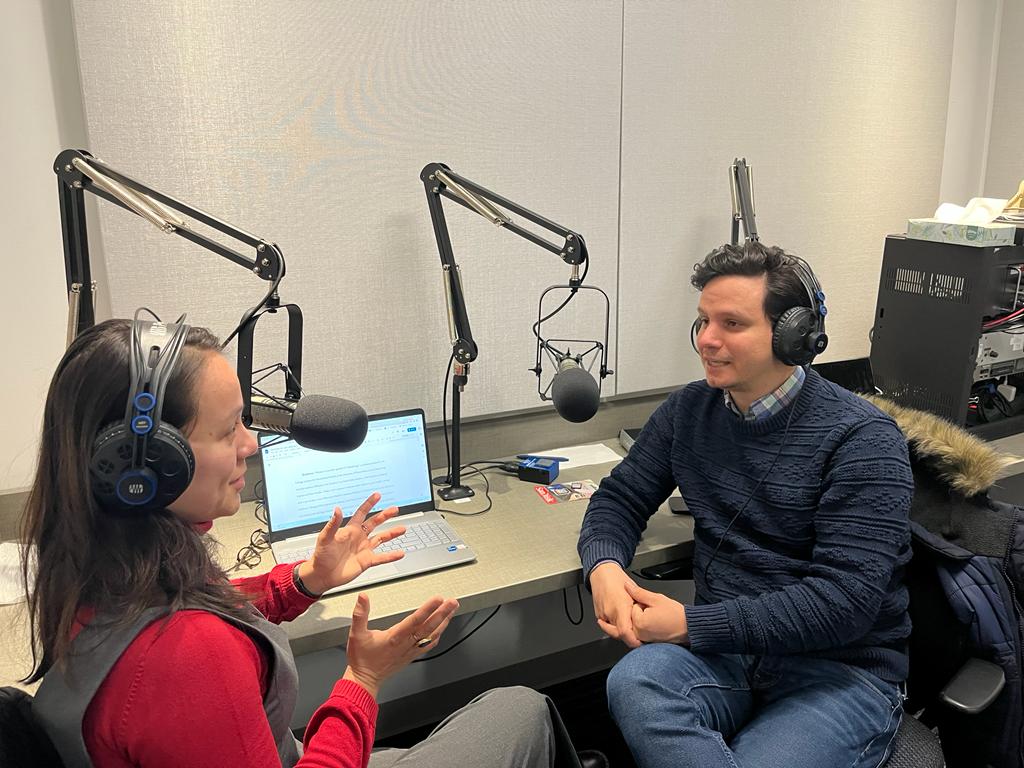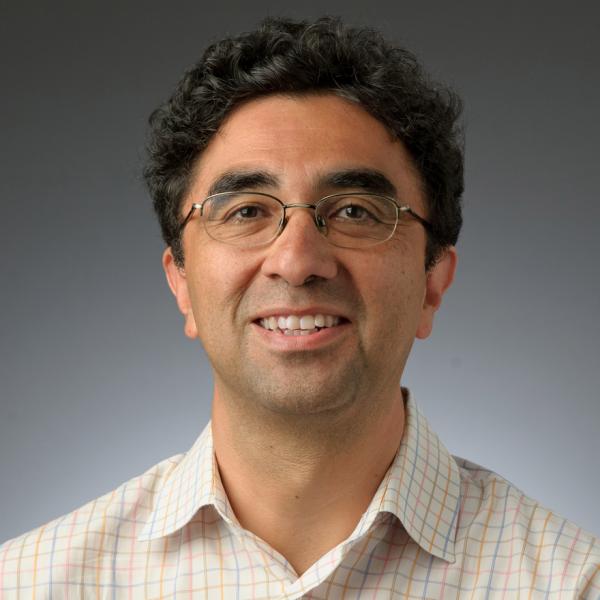
In celebration of our 40th anniversary in 2023, the Kellogg Institute launched a new podcast series,
with doctoral student hosts interviewing scholars about their research. For the 2025-26 academic year, the podcast coordinators are Doctoral Student Affiliates Patrick McQuestion and Alejandro González Ruiz.
Click episode titles below to see Show Notes, Links, and other resources.
Listen below, ask your smart device to “play Global Stage podcast,” or find us on: Apple | Spotify | Stitcher | iHeartRadio | TuneIn | YouTube
Season 5
Global Democracy Series
 Inside Venezuela’s Struggle for Democracy: A Conversation with Paola Bautista de Alemán
Inside Venezuela’s Struggle for Democracy: A Conversation with Paola Bautista de Alemán
Venezuelan journalist and political activist Paola Bautista de Alemán joins Adriana Albanus, PhD student in Political Science and Kellogg Doctoral Student Affiliate, for a conversation on Venezuela’s long fight for freedom and democratic renewal. Drawing on her work as director of FORMA, Bautista de Alemán reflects on how democratic values are sustained under authoritarian pressure. The episode also examines the international aftermath of the recent U.S. operation that captured Nicolás Maduro and the competing debates it triggered and what external pressure can (and can’t) achieve for a democratic transition.
Episode: 8
Published: March 2, 2026
Length: 24:26
Host: Adriana Albanus
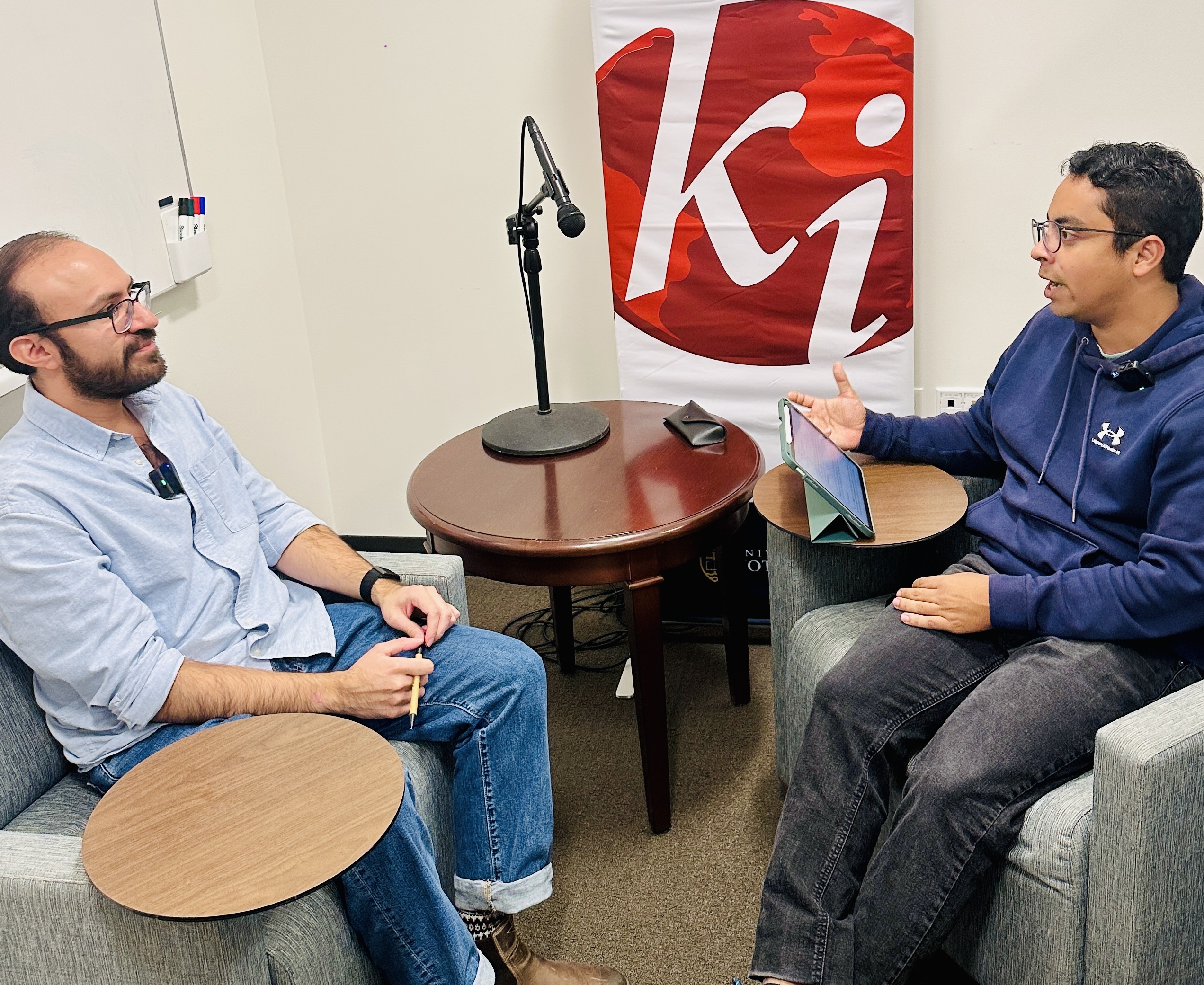 Disappearances and Selective Violence in Mexico with Data Scientist Jorge Ruiz Reyes
Disappearances and Selective Violence in Mexico with Data Scientist Jorge Ruiz Reyes
Jorge Ruiz Reyes, Research Associate at the Kellogg Institute, joins Ángel Muñoz Carpintero, JSD student and Kellogg Doctoral Student Affiliate, to discuss the role of open-source methods and technologies in documenting human rights violations. Ruiz Reyes, who holds a master’s in social data science from the University of Oxford, reflects on his work with Kellogg's Violence and Transitional Justice Lab (VT-J), developing tools to analyze disappearances and selective violence in Mexico.
Episode: 7
Published: February 16, 2026
Length: 32:41
Host: Ángel Muñoz-Carpintero
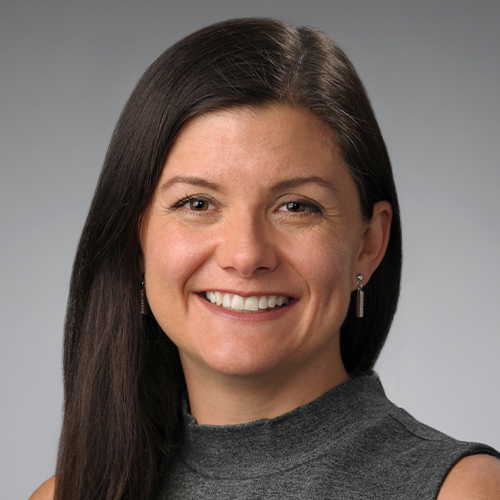 Writing the History of Mexico's "Dirty War" with Gladys McCormick
Writing the History of Mexico's "Dirty War" with Gladys McCormick
In this episode, Gladys McCormick joins Kellogg Institute PhD Fellows Victoria Basulto (history) and Leon Heitler (political science) for a conversation about writing the history of Mexico’s “Dirty War.” McCormick discusses her new book, 'The Last Door: A History of Torture in Mexico’s War against Subversives,' and reflects on the challenges of documenting state violence through fragmented archives, contested memories, silences in the historical record, and the enduring legacy of forced disappearances and torture.
Episode: 6
Published: February 2, 2026
Length: 20:50
Hosts: Victoria Basulto and Leon Heitler
 Arte público y “political timing” con la artista cubana Tania Bruguera
Arte público y “political timing” con la artista cubana Tania Bruguera
En este episodio de Global Stage, la artista y profesora de arte visual en Harvard Tania Bruguera es entrevistada por Alejandro Giraldo Gil, sobre sus obras y su filosofía sobre la performatividad y la expresión pública. Bruguera reflexiona sobre su trayectoria dentro y fuera de Cuba, el valor de la crítica en espacios comunitarios y su visión actual sobre la migración global. Bruguera reflexiona sobre las fuentes de la belleza en la experiencia del espectador, la oportunidad política (“political timing”) y el valor del diálogo crítico con las narrativas públicas en los espacios comunitarios.
Episode: 5
Published: January 23, 2026
Length: 30:51
Host: Alejandro Giraldo Gil
En este episodio de Global Stage, el autor y politólogo Luis Schiumerini es entrevistado por el afiliado doctoral del Instituto Kellogg Tomas Gianibelli sobre su nuevo libro Incumbency Bias: Why Political Office is a Blessing and a Curse in Latin America, que estudia el fenómeno de la reelección de los partidos oficialistas en la región. La conversación explora cómo las expectativas de la población y la capacidad estatal determinan si el cargo político es una ventaja o una pesadilla para alcaldes y gobernadores en América Latina. Con estudios de caso en Brasil, Argentina y Chile, Schiumerini analiza cómo factores cruciales como el desempeño gubernamental, los recursos fiscales, y el impacto de 'shocks' económicos moldean el comportamiento electoral de los líderes políticos en las democracias de la región.
Episode: 4
Published: December 1, 2025
Length: 23:12
Host: Tomas Gianibelli
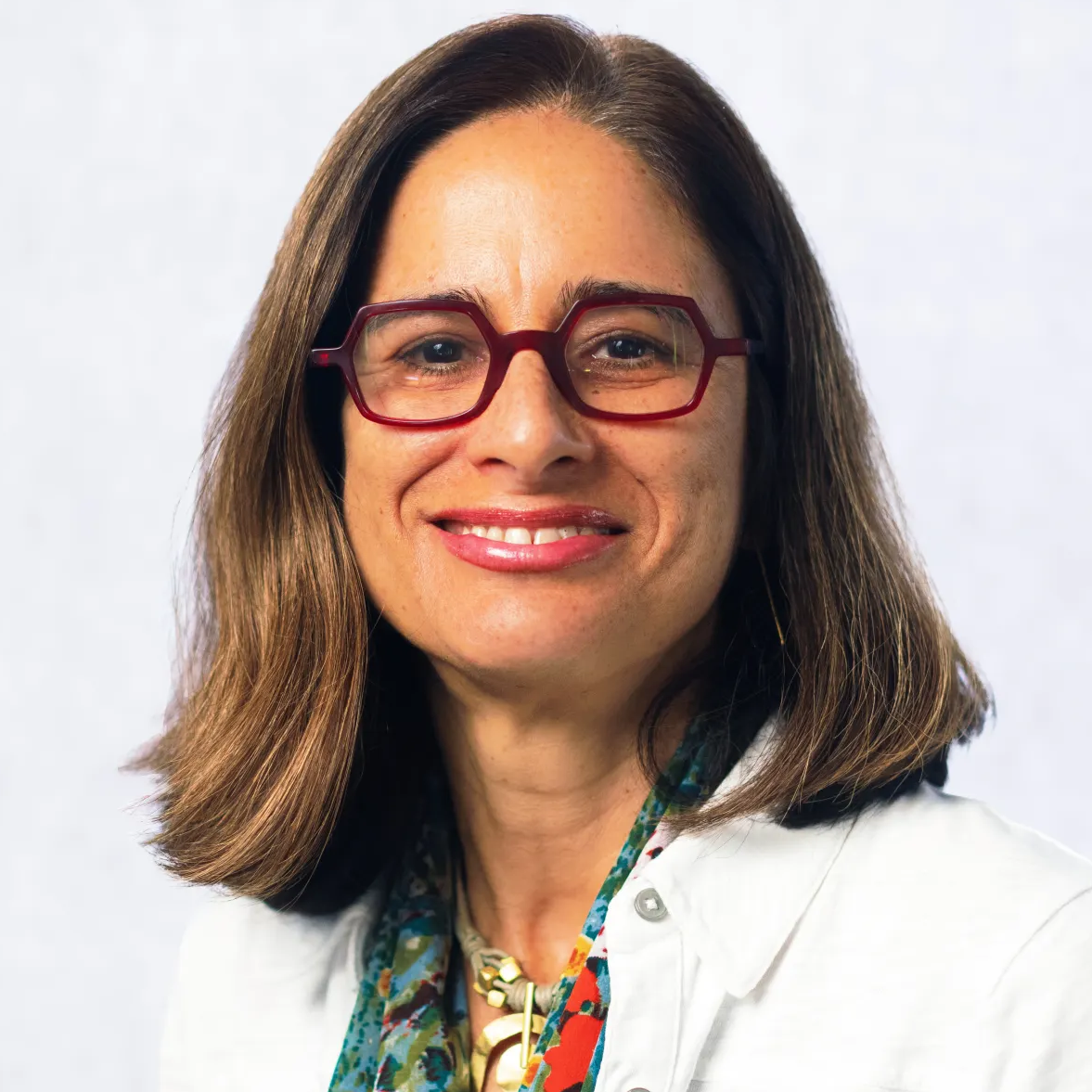 Political Discontent in Latin America, with Political Scientist Vicky Murillo
Political Discontent in Latin America, with Political Scientist Vicky Murillo
In this episode, Vicky Murillo, professor of political science and international and public affairs at Columbia University, joins Kellogg Doctoral Affiliate Géssica de Freitas, PhD student in political science at the University of Notre Dame, for a conversation about her forthcoming co-edited volume with Gabriel Kessler. The book examines a pressing question in contemporary Latin America: why are citizens increasingly disillusioned with democracy, even as the region has achieved notable social progress? Murillo discusses how improvements in poverty reduction, education, and rights expansion have raised expectations that many governments have struggled to fulfill, generating frustration and widespread political discontent. She explains the distinction between “vertical” discontent, aimed at political elites as a whole, and “horizontal” discontent, which targets opposing political coalitions – each presenting unique challenges for democratic stability and representation in Latin America.
Episode: 3
Published: November 19, 2025
Length: 22:53
Host: Géssica de Freitas
In this episode, S. Y. Quraishi, Former Chief Election Commissioner of India, joins Kellogg Doctoral Affiliate Alejandro Gonzalez, PhD student in Political Science, for a conversation on the vital role of Electoral Management Bodies (EMBs) in guaranteeing free and fair elections. He reflects on the logistical, cultural, ethnic, and religious diversity challenges of administering elections in the world’s largest democracy. Drawing on his unique experience, Quraishi shares insights on the pressures faced by election authorities, the resilience of India’s electoral system, and key recommendations for strengthening electoral integrity worldwide.
Episode: 2
Published: September 23, 2025
Length: 15:51
Host: Alejandro Gonzalez
In this special episode of Global Stage, democracy promotion expert Thomas Carothers joins Kellogg Doctoral Affiliate Patrick McQuestion for a conversation from the Kellogg Institute’s Global Democracy Conference, held in Washington, DC, on May 12 and 13, 2025. Drawing from decades of experience, Carothers provides insight into the origins of development aid in the United States since the 1980s and the ideological dilemmas at home and abroad around the role of the US supporting democracy around the world. Carothers addresses the fundamental benefits of liberal democracy in contrast to autocratic alternatives, and the important role of universities in convening and bringing knowledge to bear on current affairs.
Episode: 1
Published: September 16, 2025
Length: 24:34
Host: Patrick McQuestion
Season 4
In this episode of Global Stage, Kellogg PhD Fellow Lexi Gonzalez Madrid interviews Jessica Noffsinger, Vania Smith-Oka, and Vanesa Miseres about their project, “Cafecitos: Motherhood and Migration Stories through Art, Literature and Community-Building” funded by Humanities Without Walls. This long-term collective endeavor taking place in South Bend, in alliance with local organization La Casa de Amistad, creates spaces for migrant mothers to share their personal stories and connect over art and literature in a multidisciplinary environment. From their professional backgrounds in anthropology and literature, respectively, Smith-Oka and Miseres explain how this unique learning experience is one that blends theory and practice with art and expression. Collaborator Jessica Noffsinger describes the diverse community and nourishing family-friendly environment provided by this innovative endeavor. And PhD student Gonzalez Madrid expresses her appreciation for this project which has connected her to local communities of migrant mothers outside of the classroom.
En este episodio de Global Stage, Lexi Gonzalez Madrid, Kellogg PhD Fellow, entrevista a Jessica Noffsinger, Vania Smith-Oka, y Vanesa Miseres sobre su proyecto “Cafecitos: Historias de maternidad y migración a través del arte, la literatura y la construcción comunitaria,” financiado por Humanities Without Walls. Este proyecto colectivo a largo plazo, que se lleva a cabo en South Bend en alianza con la organización local La Casa de Amistad, crea espacios para que las madres migrantes compartan sus historias personales y conecten a través del arte y la literatura en un entorno multidisciplinario. Con su formación profesional en antropología y literatura, respectivamente, las profesoras Smith-Oka y Miseres explican cómo esta experiencia de aprendizaje única combina teoría y práctica con arte y expresión. La colaboradora Noffsinger describe la comunidad diversa y el ambiente familiar y enriquecedor que ofrece esta innovadora iniciativa. Además, la alumna doctoral en antropología Gonzalez Madrid expresa su agradecimiento por este proyecto, que la ha conectado con comunidades locales de madres migrantes fuera del aula.
Episode: 17
Published: August 20, 2025
Length: 21:26
Host: Lexi Gonzalez Madrid
English -
Women's Voices of Defiance: Activism under Authoritarian Rule in Latin America / Voces de mujeres en resistencia: Activismo en contextos autoritarios en América Latina
Introducing "Women's Voices of Defiance: Activism under Authoritarian Rule in Latin America,” a special summer series from Global Stage featuring guests with personal experiences and perspectives on Venezuela, Nicaragua, and El Salvador.
Presentamos "Voces de mujeres en resistencia: Activismo en contextos autoritarios en América Latina," una serie especial de verano de Global Stage con invitados con experiencias y perspectivas personales sobre Venezuela, Nicaragua y El Salvador.
Venezuelan author Irina Troconis discusses her book The Necromantic State: Spectral Remains in the Afterglow of Venezuela's Bolivarian Revolution (Duke University Press 2025) with Notre Dame doctoral student Alejandro Giraldo Gil. Troconis describes her use of the concept of necromancy to elucidate the legacy and ongoing influence of the Chavez regime in Venezuela. According to the author, the “necromantic state” is the site of collaboration between government and people in conversation with the dead. Tronconis elaborates on her field research process, which began in 2016 and involved visiting sites of memorialization, moments of discovery and “hunting” ghosts, and feeling the sense of being haunted in the process.
La autora venezolana y profesora en la Universidad de Cornell Irina Troconis analiza su libro "El Estado Nigromántico: Despojos Espectrales en el Estela de la Revolución Bolivariana de Venezuela" (Duke University Press, 2025) con Alejandro Giraldo Gil, estudiante de doctorado en Notre Dame. Troconis describe su uso del concepto de nigromancia para dilucidar el legado y la influencia continua del régimen chavista en Venezuela. Según la autora, el "estado nigromántico" es el espacio de colaboración entre el gobierno y el pueblo en diálogo con los muertos. Troconis profundiza en su proceso de investigación de campo, que comenzó en 2016 e implicó visitar lugares de conmemoración, momentos de descubrimiento y "cacería" de fantasmas, experimentando la sensación de estar atormentada en el proceso.
Episode: 16
Published: August 11, 2025
Length: 25:37
Host: Alejandro Giraldo Gil
English-
En este episodio, Tamara Dávila, activista nicaragüense, y Verónica Reina, defensora salvadoreña, analizan junto a Mayra Ortiz Ocaña el estado de la democracia y los derechos humanos en Centroamérica. Conversan sobre la libertad de expresión y asociación, la violencia y condiciones carcelarias bajo regímenes autoritarios, y comparten sus experiencias como mujeres en la defensa de derechos humanos. Este podcast es parte de una serie especial de verano titulada "Voces de mujeres en resistencia: Activismo en contextos autoritarios en América Latina."
Episode: 15
Published: August 4, 2025
Length: 36:04
Host: Mayra Ortiz Ocaña
St. Óscar Romero - 2025
Introducing "St. Óscar Romero - 2025,” a special summer series from Global Stage featuring presenters and content from the conference "Romero Days 2025: The Future of Romero Studies," hosted by the Kellogg Institute March 24-25, 2025.
In this episode of Global Stage, Alma Tinoco Ruiz from Duke University and Laurel Marshall Potter from the University of St. Thomas talk about their own research as theologians. In conversation with Kellogg doctoral affiliate Matt Cortese, SJ, they discuss the reception of St. Óscar Romero in communities today, both in the US and in El Salvador.
Episode: 14
Published: July 21, 2025
Length: 37:20
Host: Matt Cortese
In this episode of Global Stage, David Lantigua and Todd Walatka, professors in the Theology Department at the University of Notre Dame and co-directors of the Óscar Romero Working Group at the Kellogg Institute, talk about Notre Dame's role in the continued studies of St. Óscar Romero. In conversation with theology masters student Robert Hernandez, Walatka and Lantigua discuss the history of the Latin American/North American Church Concerns (LANACC) at Kellogg and the role of universities in studying a figure like Romero, who insisted on praxis and reality over ideas and theory. This podcast is the second in a special series based on the Romero conference that took place at the Kellogg Institute for International Studies in the spring of 2025.
Episode: 13
Published: July 14, 2025
Length: 27:13
Host: Robert Hernandez
 Romero 2025 Series - La memoria de San Óscar Romero: Una conversación con P. Rodolfo Cardenal, SJ
Romero 2025 Series - La memoria de San Óscar Romero: Una conversación con P. Rodolfo Cardenal, SJ
En este episodio, el Dr. Rodolfo Cardenal, SJ, sacerdote jesuita nicaragüense que ha vivido gran parte de su vida adulta en El Salvador, habla sobre la importancia de la vida de San Óscar Romero. Cardenal es director del Centro Monseñor Óscar Romero de la Universidad Centroamericana José Simeón Cañas. Romero fue asesinado el 24 de marzo de 1980 por hablar en contra del gobierno mientras celebraba la Eucaristía. En conversación con candidata doctoral en Teología y coordinadora de posgrado del grupo de trabajo de Óscar Romero del Kellogg Institute, Amirah Orozco, Cardenal habla sobre la importancia de recordar a Romero, las controversias en torno a su vida y muerte, y el futuro de los Estudios Romero. Este podcast es el primero de una serie especial basada en la conferencia que tuvo lugar en el Kellogg Institute for International Studies los días 24 y 25 de marzo de 2025.
Episode: 12
Published: July 7, 2025
Length: 30:00
Host: Amirah Orozco
In this episode of Global Stage, Kellogg Faculty Fellow Ricky Clark discusses his new book "Cooperative Complexity: The Next Level of Global Economic Governance," which explores how international financial institutions have developed new forms of collaboration to address global challenges. In conversation with Kellogg doctoral affiliate William Kakenmaster, Clark examines how institutional overlap drives competition among international financial institutions, the emergence of cooperation between these institutions in recent decades, and the downstream consequences of such cooperation for institutional efficacy. Clark explains the distinction between political and economic efficiency in co-financing, highlights his mixed-methods research design, and reflects on how these institutions learn from one another and respond to global crises.
Episode: 11
Published: June 23, 2025
Length: 27:34
Host: Bill Kakenmaster
In this episode of Global Stage, historians Gabriela Cano and Saúl Espino Armendáriz discuss with Victoria Basulto, a Kellogg PhD fellow in History, their recent publication, the Biographical Dictionary of Women from the Colegio of Mexico (Diccionario Biográfico de las Mujeres de El Colegio de México: Las generaciones constructoras) published by COLMEX in 2024. The authors discuss the methodological decisions behind editing this dictionary as well as the analytical motivations for their intersectional examination of gender and democracy within the context of higher education in Mexico.
Episode: 10
Published: June 2, 2025
Length: 27:40
Hosts: Victoria Basulto
In this episode of Global Stage, political scientist Rachel Schwartz discusses state-building, corruption, and accountability in post-war societies, focusing on Central America. In conversation with Kellogg Doctoral Student Affiliate and political scientist Isabel Güiza-Gómez, Schwartz presents the main argument and findings from her book entitled "Undermining the State from Within: The Institutional Legacies of Civil War in Central America" (Cambridge University Press, 2023), which examines how counterinsurgent states in Guatemala and Nicaragua did not just disappear with the end of civil war, but instead left behind enduring institutional legacies that have undermined the state’s ability to function – especially in areas like tax collection, public security, and property administration. Schwartz also reflects on her current book project on international anti-corruption commissions in Guatemala, Honduras, and El Salvador.
En este episodio de Global Stage, la politóloga Rachel Schwartz discute sobre la construcción estatal, corrupción, y rendición de cuentas en sociedades de posguerra con énfasis en Centroamérica. En conversación con la afiliada doctoral del Instituto Kellogg Isabel Güiza-Gómez, Schwartz presenta el argumento central y hallazgos de su libro titulado "Socavar El Estado Desde Adentro: Los Legados Institucionales de la Guerra Civil en Centroamérica" (Cambridge University Press 2023, Editorial Sophos, 2025), el cual examina la forma en que los estado contrainsurgentes en Guatemala y Nicaragua no desaparecieron con el fin de la guerra civil, sino que, por el contrario, dejaron legados institucionales persistentes que han debilitado la capacidad del estado – en especial, en áreas como recolección de impuestos, seguridad pública y administración de la propiedad. Schwartz también reflexiona sobre su actual proyecto de libro acerca de las campañas internacionales anticorrupción en Guatemala, Honduras y El Salvador.
Episode: 9
Published: April 14, 2025
Length: 27:15
Host: Isabel Güiza-Gómez
English:
Español:
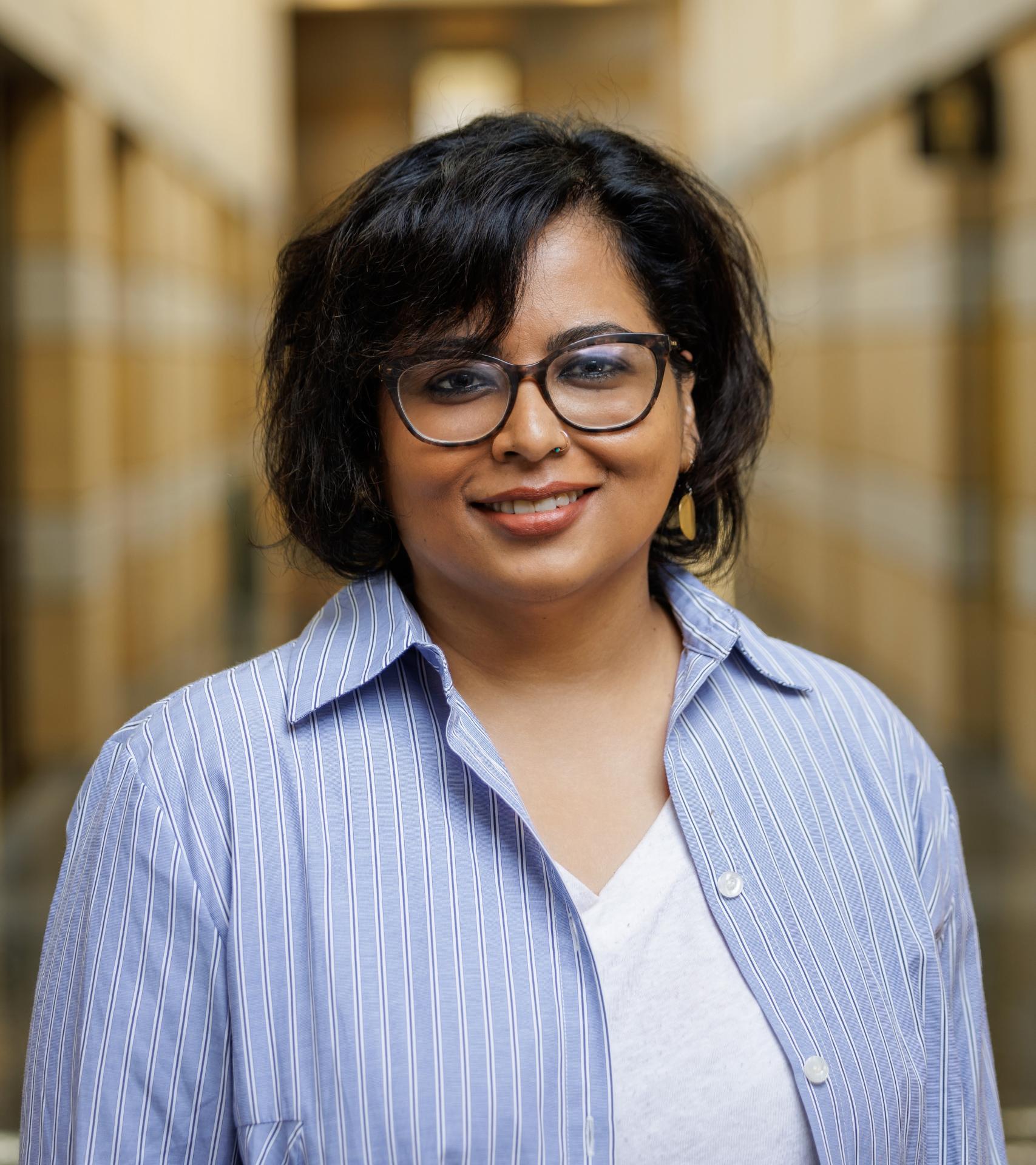 Imperceptible Politics of “the Crowd,” with Anthropologist Nusrat Chowdhury
Imperceptible Politics of “the Crowd,” with Anthropologist Nusrat Chowdhury
In this episode of Global Stage, anthropologist Nusrat Chowdhury discusses her critical analysis of Bangladeshi “chhatra-janata” or student-people in popular protests, slogans, and graffiti that led to the ouster of Prime Minister Sheikh Hasina in 2024. In conversation with Kellogg Doctoral Student Affiliate and sociologist Eisar Haider, she reflects on “crowd politics” of social movements beyond the generational differences in social movements, and the links between “signature” infrastructure projects and authoritarian populism. Chowdhury also describes the forms of resistance in language and the subaltern sources she noticed when undertaking ethnographic methods in her fieldwork.
Episode: 8
Published: February 24, 2025
Length: 28:57
Host: Eisar Haider
 Women During and After the 2011 Egyptian Uprising, with Political Scientist Nermin Allam
Women During and After the 2011 Egyptian Uprising, with Political Scientist Nermin Allam
In this episode of Global Stage, political scientist Nermin Allam (Rutgers University) describes her research on the intersection of women activism and authoritarianism. Interviewed by Kellogg Doctoral Affiliate Francesca Freeman, Allam unpacks the questions of how power is yielded, reproduced, and contested within patriarchal authoritarian regimes. Her new book project, “The Afterlife Goes On,” studies the legacy of women’s participation in the Egyptian uprising in 2011 against Hosni Mubarak.
Episode: 7
Published: February 17, 2025
Length: 31:24
Host: Francesca Freeman
In this episode of Global Stage, political scientist Sandra Botero (Universidad del Rosario) discusses her 2023 book, Courts that Matter: Activists, Judges, and the Politics of Rights Enforcement (Cambridge University Press). A former Kellogg Institute PhD Fellow and current Visiting Fellow, Botero describes how her background in legal studies and connections to the Kellogg Institute have influenced her research on judicial politics and collaborative oversight arenas. She also argues for the value of interdisciplinary research methods for tackling complex questions around judicial politics, polarization, and now in her current research on internet regulations and digital rights.
En este episodio de Global Stage, la politóloga Sandra Botero (Universidad del Rosario) presenta su libro del 2023, Courts that Matter: Activists, Judges, and the Politics of Rights Enforcement (Cambridge University Press). Botero describe como su formación en estudios legales y las conexiones con el Instituto Kellogg han influenciado su investigación sobre la política judicial y los espacios de monitoreo colaborativo. Además expresa su apoyo por los métodos de investigación interdisciplinario para entender las complejidades de la política judicial, la polarización y la reglamentación del internet y los derechos digitales.
Episode: 6
Published: January 27, 2025
Length: 21:24
Host: Patrick McQuestion
English:
Español:
 Resisting Backsliding with Political Scientist Laura Gamboa / Resistiendo el Retroceso con la Politóloga Laura Gamboa
Resisting Backsliding with Political Scientist Laura Gamboa / Resistiendo el Retroceso con la Politóloga Laura Gamboa
In this episode of Global Stage, Keough School Assistant Professor Laura Gamboa presents her book "Resisting Backsliding: Opposition Strategies Against the Erosion of Democracy." In conversation with Kellogg doctoral affiliate Isabel Güiza-Gómez, Gamboa discusses recent cases of democratic erosion and resilience in Latin America, emphasizing when and how opposition actors can successfully protect the rule of law and political competition despite maximalist executives’ interests in accumulating power.
En este episodio de Global Stage, la profesora asistente de la Escuela Keough, Laura Gamboa, habla sobre su libro Resistiendo el Retroceso: Estrategias de la Oposición contra la Erosión de la Democracia. En conversación con la afiliada doctoral al Instituto Kellogg, Isabel Güiza-Gómez, Gamboa discute casos recientes de erosión democrática y resiliencia democrática en América Latina con énfasis en cuándo y cómo los actores opositores pueden exitosamente proteger el Estado de derecho y la competencia política a pesar de los intereses de los ejecutivos maximalistas para acumular poder.
Episode: 5
Published: December 09, 2024
Length: 33:06
Host: Isabel Güiza-Gómez
English:
Español:
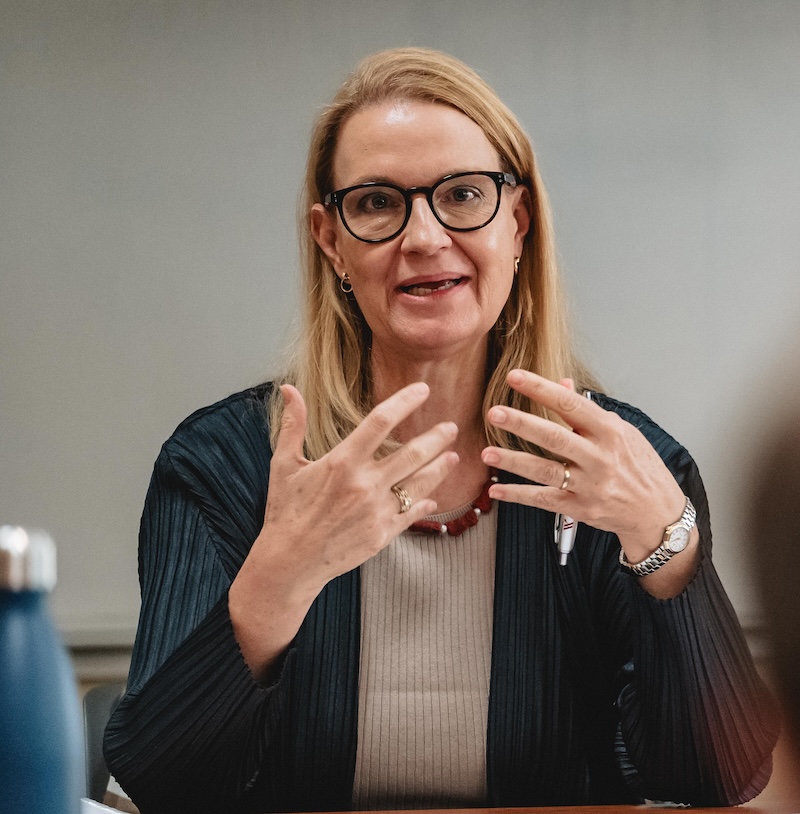 Democratic Erosion and Reconstruction with Marianne Kneuer
Democratic Erosion and Reconstruction with Marianne Kneuer
In this episode of Global Stage, Kellogg Institute Visiting Fellow Marianne Kneuer discusses her new project on democratic erosion and post-erosion reconstruction. In conversation with Kellogg PhD Fellow León Heitler, Kneuer also describes the important position of the Kellogg Institute for answering questions related to democracy, as well as her personal experiences as a journalist and public servant that have shaped the normative convictions driving the formulation of her research questions.
Episode: 4
Published: November 18, 2024
Length: 26:20
Host: León Heitler
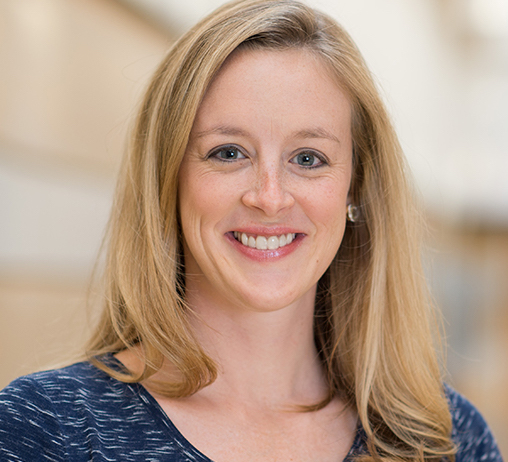 Mental Health Impacts of Violence on Human Development with Psychologist Laura Miller-Graff
Mental Health Impacts of Violence on Human Development with Psychologist Laura Miller-Graff
In this episode of Global Stage, Keough School faculty member and psychologist Laura Miller-Graff describes her research on the impacts of violence on mental health and human development. Interviewed by doctoral candidate in peace studies and psychology Catherine Maloney, Miller-Graff offers an intersectional analysis of mental health outcomes for women, health care workers, and populations suffering from housing instability. The discussants expound upon the constraints on systems of care especially in developing countries, and the prospects of task-sharing for mental health provision.
Episode: 3
Published: October 28, 2024
Length: 31:21
Host: Catherine Maloney
 Intersectional Inequality in Africa with Economist Murray Leibbrandt
Intersectional Inequality in Africa with Economist Murray Leibbrandt
South African economist Murray Leibbrandt is interviewed by Kellogg Institute PhD Fellow Rasheed Ibrahim on measuring inequality and poverty in Africa. Leibbrandt describes the importance of tying policies together to create dynamic environments for improving livelihoods holistically. He draws from his experience in South Africa to describe the intersectional texture of structural inequalities: regional, gendered, age-based, racialized.
Episode: 2
Published: September 30, 2024
Length: 19:15
Host: Rasheed Ibrahim
Interviewed by Kellogg Doctoral Affiliate Isabel Güiza-Gómez, Cultural Anthropologist and Peace Scholar Angela Lederach discusses her recent book entitled "Feel the Grass Grow: Ecologies of Slow Peace in Colombia," published by Stanford University Press. Focusing on Montes de María, Colombia, Lederach calls for a nuanced understanding of grassroots peacebuilding as a site for political contestation. She also introduces the concept of slow peace to refer to the temporality of grassroots peacebuilding that usually contrasts time constraints in formal peace implementation.
En entrevista con la estudiante doctoral Isabel Güiza-Gómez, la antropóloga cultural y académica sobre paz Angela Lederach discute su libro reciente que se titula y fue publicado por Stanford University Press. Con un enfoque en Montes de María, Colombia, este libro hace un llamado hacia un entendimiento detallado sobre la construcción de paz de base como un lugar de disputa política. El libro ofrece la noción de paz sin prisa para hacer referencia a la temporalidad de la construcción de paz de base, que usualmente contrasta los límites temporales de la implementación de paz en espacios formales e institucionales.
Episode: 1
Published: September 16, 2024
Length: 41:21
Host: Isabel Güiza-Gómez
English:
Español:
Global Democracy Series
Introducing “Voices from the 2024 Global Democracy Conference,” a special series from Global Stage featuring panelists and students who participated in the inaugural GDC, hosted by the Kellogg Institute between May 20-22, 2024.
Interviewed by Kellogg Institute PhD Fellow Mayra Ortiz Ocaña, political scientists Wendy Hunter (University of Texas at Austin) and Benjamín Garcia Holgado (University of Delaware) discuss the resilience and challenges of democracy in Latin America, highlighting progress in reducing deforestation and military involvement while emphasizing the importance of maintaining democratic commitments and preventing violations. They also cover the growing military involvement in public security and governance, with a focus on the potential for actors to coordinate against populist leaders. Corruption, public insecurity, and inequality are identified as significant threats to democracy in the region.
Episode: 8
Length: 31:12
Host: Mayra Ortiz Ocaña
Interviewed by Kellogg Doctoral Student Affiliate Patrick McQuestion, Helena Hofbauer Balmori of the Ford Foundation and James Long of the University of Washington discuss the significance of participation in democratic governance, with a focus on inclusive decision-making processes. Our guests highlight the role of inequality in the relationship between democracy and economic development and the weakening of democracy globally. They also discuss the rise of organized crime in Latin American politics and the need for further research on the deconstruction of judiciaries in countries like El Salvador and Guatemala. The conversation emphasizes the importance of context and the need for more research on understudied topics in the field of political science.
Episode: 7
Length: 23:04
Host: Patrick McQuestion
Interviewed by Kellogg Doctoral Student Affiliate Patrick McQuestion, political scientists Michael Coppedge (University of Notre Dame) and Brigitte Seim discuss measuring democracy through the Varieties of Democracy, or V-Dem, Project. V-Dem aims to conceptualize and measure different forms of democracy, emphasizing the importance of disaggregating data to gain a nuanced understanding of democratic trends. Our guests discuss the project's approach to conceptualization, the role of practitioner-academic partnerships, and the importance of measuring and mitigating anti-democratic phenomena online.
Episode: 6
Length: 21:56
Host: Patrick McQuestion
Interviewed by former Kellogg International Scholar Benjamín Rascón Grácia, political scientists María Isabel Puerta Riera (Valencia College) and Steven Lloyd Wilson (Brandeis University) discuss the manipulation of democratic processes through misinformation and disinformation in foreign and domestic contexts. They highlight the role of social media in spreading false information, the challenges of combating misinformation in the digital age, and the need for transparency, accountability, and critical thinking on social media platforms. They also emphasize the importance of government intervention to regulate social media and protect vulnerable groups from hate speech and discrimination.
Episode: 5
Length: 33:08
Host: Benjamín Rascón Grácia
Interviewed by Kellogg PhD Fellow Bill Kakenmaster, political scientists Christina Wolbrecht and Dave Campbell discuss democracy and the political landscape of the United States. The 2024 US presidential election is a crucial moment for democracy, with growing trends of election denialism and the potential for undermining democratic norms. The conversation highlights the significance of inclusivity in politics, with a focus on the impact of women in leadership roles on adolescents' attitudes towards democracy. Speakers discuss the ongoing debate on who belongs and whose voice gets heard, as well as the importance of adapting to changing demographics.
Episode: 4
Length: 34:25
Host: Bill Kakenmaster
In this third episode of the Global Democracy Series, political scientists Laura Gamboa (University of Utah) and Kurt Weyland (University of Texas at Austin) reflect on the current state of democracy worldwide with Kellogg Institute Doctoral Affiliate Benjamin Francis. The speakers highlight some growing threats to democracy, such as the deleterious effects of economic crises, populism, and moral dilemmas to restraining anti-democratic behavior. They emphasize the importance of strategic decision-making to limit backsliding, as well as various institutional and extra-institutional strategies for protecting democracy.
Episode: 3
Length: 27:35
Host: Benjamin Francis
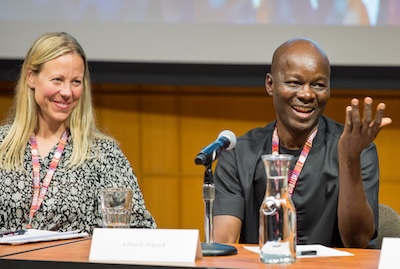 The Return of Military Coups in Africa: A Conversation with Joseph Asunka and Rachel Riedl
The Return of Military Coups in Africa: A Conversation with Joseph Asunka and Rachel Riedl
This episode of our special Global Democracy Series features a conversation between Rachel Riedl, professor of international studies at Cornell University, and Joseph Asunka, chief executive officer at Afrobarometer, along with Kellogg PhD Fellow Rasheed Ibrahim on the recent military coups in Sub-Saharan Africa. They analyze the potential long-term consequences of these coups, the role of the military in democratic governance, the decline in citizens' commitment to democracy, and the structural constraints that limit the military's effectiveness in addressing security challenges.
Episode: 2
Length: 26:47
Host: Rasheed Ibrahim
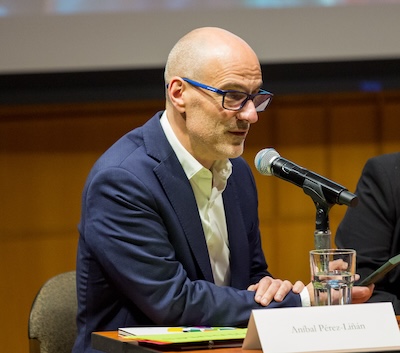
In this introductory episode, Kellogg Institute Director Aníbal Pérez-Liñán is interviewed by doctoral affiliates and Global Stage co-organizers Isabel Güiza-Gómez and Patrick McQuestion on his take-aways from the conference proceedings. Pérez-Liñán describes the motivation behind organizing this international conference, reflects on some key moments and debates, and describes plans for the next GDC in 2025.
Episode: 1
Length: 11:40
Hosts: Isabel Güiza-Gómez and Patrick McQuestion
Season 2
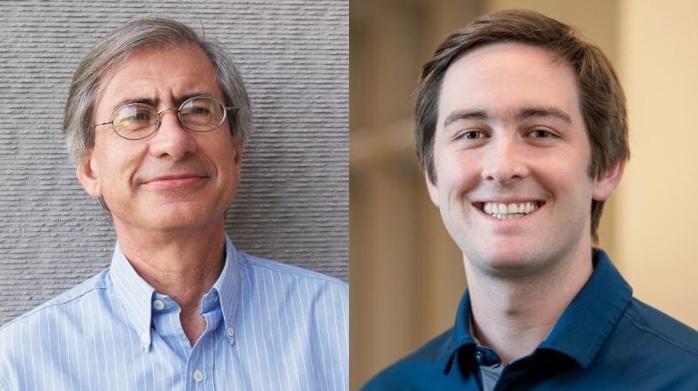 Jorge Vargas Cullell and the Uneasy Relationship of Peace, Democracy, and Human Development
Jorge Vargas Cullell and the Uneasy Relationship of Peace, Democracy, and Human Development
Interviewed by Kellogg Doctoral Affiliate Patrick McQuestion, political scientist and peacebuilder Jorge Vargas Cullell, a former Kellogg Dissertation Year Fellow, discusses his long-standing connection to Notre Dame and perspective on the field of democratic theory today.
Episode 12
Published: 2024-05-13
Length: 30:01
Host: Patrick McQuestion
Interviewed by Kellogg PhD Fellow Victoria Basulto, historian Jaime Pensado discusses his recently published book entitled “Love and Despair. How Catholic Activism Shaped Politics and the Counterculture in Modern Mexico.” The book explores how progressive and conservative Catholic actors were invested in state repression, youth activism, and counterculture in Cold War Mexico.
Episode 11
Published: 2024-04-22
Length: 17:08
Host: Victoria Basulto
As Women's History Month draws to a close, Global Stage presents a discussion among political scientist Abby Córdova, Kellogg Doctoral Student Affiliate Isabel Güiza-Gómez, and undergraduate International Scholar Isabela Tasende about their current research and policy work with the Notre Dame Eliminating Violence Against Women Lab.
Para conmemorar el mes de las luchas de las mujeres, la politóloga Abby Córdova junto con la afiliada doctoral Isabel Güiza-Gómez y la estudiante de pregrado Isabela Tasende discuten sobre la investigación y el trabajo de política pública del Laboratorio para la Eliminación de la Violencia contra la Mujer. Este laboratorio del Instituto Kellogg fue recientemente lanzado y está dirigido a comprender una de las preguntas más apremiantes sobre democracia y desarrollo: ¿Cómo podemos resolver de forma efectiva la violencia contra la mujer en contextos donde la violencia criminal a gran escala y las profundas desigualdades incrementan los riesgos para la participación política de la mujer y usualmente conllevan a su migración forzada?
Episode 10
Published: 2024-03-25
Length: 35:05
Host: Isabel Güiza-Gómez and Isabela Tasende
English:
Español:
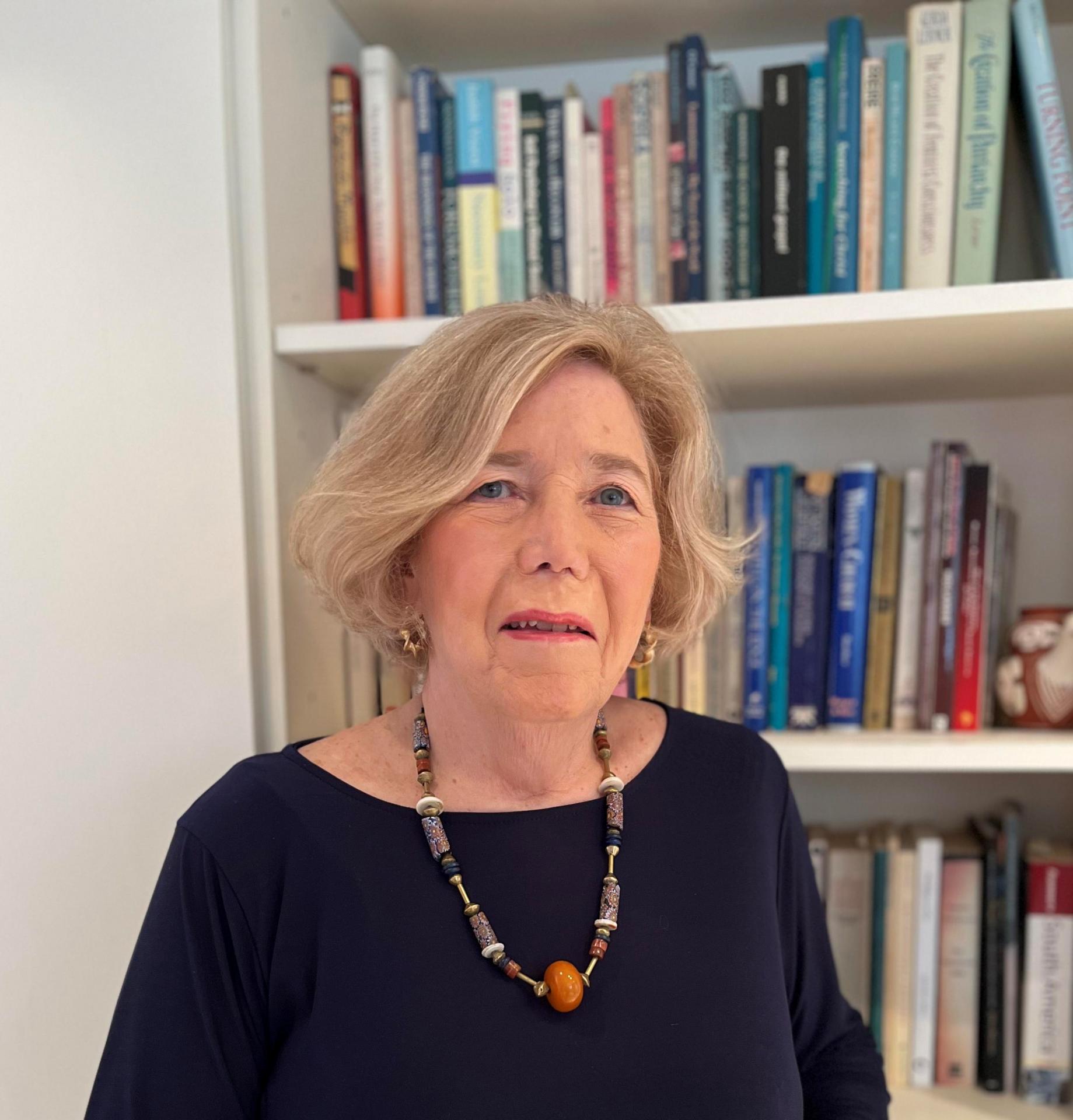 "I Surrender: A Memoir of Chile’s Dictatorship, 1975" with Kathleen Osberger
"I Surrender: A Memoir of Chile’s Dictatorship, 1975" with Kathleen Osberger
Interviewed by Kellogg Doctoral Student Affiliate María Paz Madrid, Notre Dame alumnus Kathleen Osberger talks about her book I Surrender: A Memoir of Chile’s Dictatorship, 1975, which recounts her experience in Chile in 1975, two years after a CIA-assisted coup overthrew the democratically-elected president Salvador Allende and installed the Pinochet dictatorship. The book highlights the prominent role of Chilean people in confronting the military dictatorship, paying tribute to victims after five decades.
Episode 9
Published: 2024-03-25
Length: 30:39
Host: María Paz Madrid
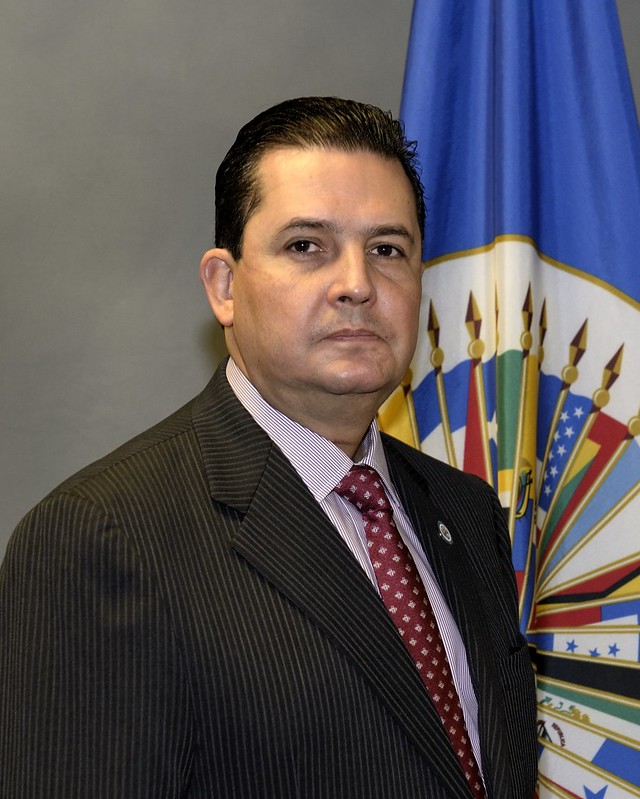 Democracy and Electoral Observation with the OAS Secretary for Strengthening Democracy
Democracy and Electoral Observation with the OAS Secretary for Strengthening Democracy
Interviewed by Kellogg Doctoral Student Affiliate Alejandro González, OAS Secretary for Strengthening Democracy Francisco Javier Guerrero Aguirre discusses emerging and lingering challenges for electoral democracy in Latin America and the Caribbean. Drawing upon his engagement with 49 electoral observation missions in 34 countries, Guerrero highlights the role of organized crime in weakening democracy – as recently seen in Ecuador – and social mobilization against democratic backsliding – as in Guatemala.
Episode 8
Published: 2024-02-19
Length: 21:18
Host: Alejandro González
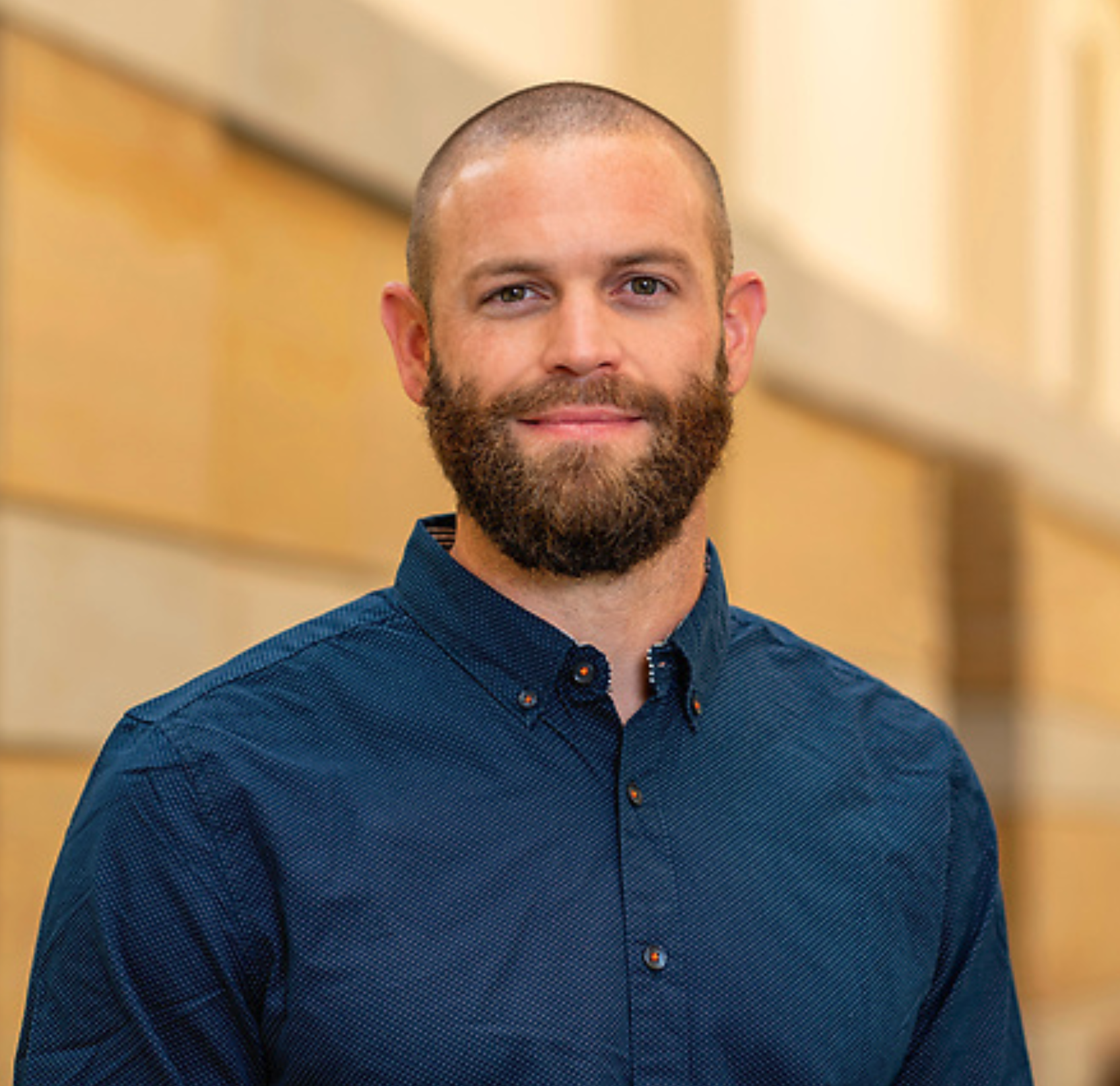 Environmental Violence and Peacebuilding with Anthropologist Drew Marcantonio
Environmental Violence and Peacebuilding with Anthropologist Drew Marcantonio
Richard “Drew” Marcantonio sits down with Kellogg Doctoral Student Affiliate Patrick McQuestion to discuss the intricacies of environmental violence and peacebuilding. As a researcher and practitioner focused on regenerative livelihoods and environmental management, Marcantonio provides an ethically-motivated framework for assessing violence produced by economic structures, material interventions, vulnerable infrastructure, and power differentials.
Episode 7
Published: 2024-01-29
Length: 31:06
Host: Patrick McQuestion
Global Stage celebrates the 40th anniversary of uninterrupted Democracy in Argentina since 1983, when the country transitioned from authoritarianism to democratic politics. Interviewed by Kellogg PhD Fellow Natán Skigin, Kellogg Institute director and political scientist Anibal Pérez-Liñán and Kellogg Faculty Fellow and political scientist Luis Schiumerini highlight the accomplishments, challenges, and future of Argentine democracy with their expertise in political regimes, parties, elections, and polarization, as well as their personal backgrounds as citizens from Argentina.
El podcast Global Stage celebra el cuadragésimo aniversario de la democracia ininterrumpida en Argentina desde 1983 cuando el país transitó del autoritarismo a la política democrática. En entrevista con el candidato doctoral Natán Skigin, el director del Instituto Kellogg y politólogo Aníbal Pérez Liñán y el profesor afiliado al Instituto y politólogo Luis Schiumerini resaltan los logros, los desafíos y el futuro de la democracia argentina, a partir de su experticia en regímenes políticos, elecciones y polarización, así como su experiencia personal como ciudadanos argentinos.
Episode 6
Published: 2023-12-18
Length: 24:37
Host: Natán Skigin
English
Español
In this episode of Global Stage, Olukunle Owolabi, associate professor of political science at Villanova University, expands upon the background, methods, and historical evidence utilized for his recent book Ruling Emancipated Slaves and Indigenous Subjects: The Divergent Legacies of Forced Settlement and Colonial Occupation in the Global South, (Oxford University Press 2023). In an interview with Kellogg Doctoral Student Affiliate Josephine Lechartre, Dr. Owolabi describes in depth the divergent development trajectories of former settled and occupied colonial governments, including cases from North Africa and the Caribbean Islands.
Episode 5
Published: 2023-11-27
Length: 45:43
Host: Joséphine Lechartre
Interviewed by Kellogg Doctoral Affiliate William Kakenmaster, political scientist Debra Javeline discusses individual factors that shape post-conflict behavior. Based on her new book After violence: Russia's Beslan School Massacre and the Peace that Followed, Javeline tackles the question of what individual characteristics might mobilize somebody to either engage in retaliatory violence or peaceful political activism in the aftermath of large-scale violence. Her research shows that, contrary to expected, anger is a healthy civic emotion since it often drives peaceful political activism instead of violence.
Episode 4
Published: 2023-10-30
Length: 45:49
Host: William Kakenmaster
En entrevista con los estudiantes doctorales Isabel Güiza-Gómez y Patrick McQuestion, José María Tojeira describe la lucha por la justicia transicional y la defensa de los derechos humanos en El Salvador desde la firma de los acuerdos de paz de Chapultepec (1992) hasta el retroceso democrático de los últimos años. José María es sacerdote jesuita y promotor de los derechos de las víctimas a la verdad, justicia, reparación y no repetición.
Episode 3
Published: 2023-10-09
Length: 33:23
Hosts: Isabel Güiza-Gómez and Patrick McQuestion
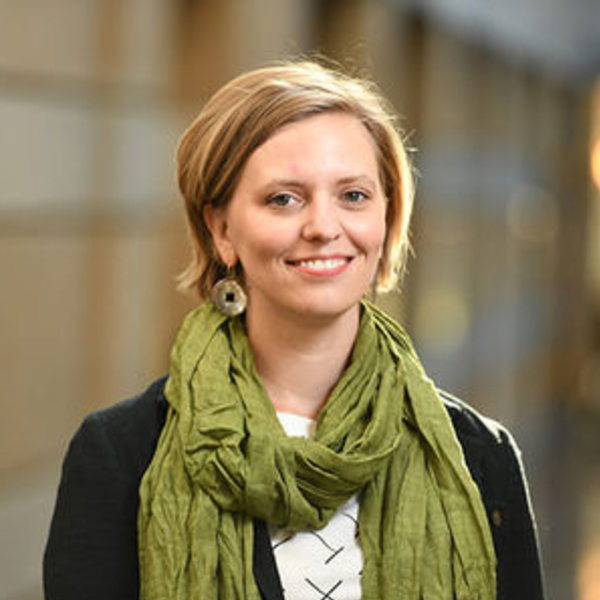 Counseling Women: Kinship Against Violence in India, with Anthropologist Julia Kowalski
Counseling Women: Kinship Against Violence in India, with Anthropologist Julia Kowalski
Kellogg Institute Faculty Fellow and Keough School anthropologist Julia Kowalski presents results from her ethnographic research around the dynamics of gender-based violence and counseling practices in northern India. In a conversation with Kellogg Doctoral Affiliate and peace studies/anthropology PhD student Jem Panganiban, Kowalski describes her use of an ideology of language framework to deconstruct the interactions between victims and perpetrators, as well as counselors and families, to understand practical and intuitive responses to violence.
Episode 2
Published: 2023-09-19
Length: 33:54
Host: Jem Panganiban
Relying on her own research agenda in women’s economic empowerment, economist Lakshmi lyer lays out old and new trends in gender economic studies, highlighting lingering questions on whether economic autonomy increases women decision-making within households and in society at large across different realms. Iyer also introduces the new Kellogg Policy and Practice research lab “Building Inclusive Growth (BIG).”
Episode 1
Published: 2023-08-21
Length: 32:04
Host: Grace Ortuzar
Season 1
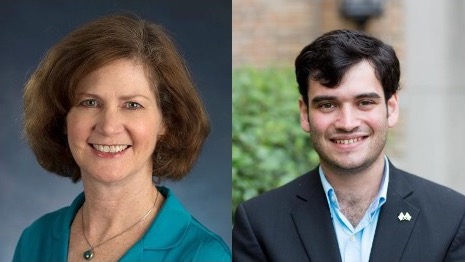 Polarizing Polities: A Global Threat to Democracy, with Jennifer McCoy
Polarizing Polities: A Global Threat to Democracy, with Jennifer McCoy
Drawing from her professional experience in conflict resolution and academic work in comparative politics, political scientist Jennifer McCoy (Georgia State University) discusses the topic of “polarizing polities” in a conversation with Kellogg Doctoral Student Affiliate Jacob Turner.
Episode 08
Published: 2023-07-10
Length: 29:24
Host: Jacob Turner
The Theological Witness of Salvadoran Archbishop St. Oscar Romero with Theologian Todd Walatka
Interviewed by Kellogg Doctoral Student Affiliate Joachim Ozonze, theologian Todd Walatka introduces his work in progress on the thinking and witness of Salvadoran Archbishop St. Oscar Romero, who illustrates a way in which Catholic social teaching has been received and developed in Latin America.
Episode 07
Published: 2023-06-12
Length: 19:24
Host: Joachim Ozonze
Interviewed by Kellogg Doctoral Student Affiliate Isabel Güiza-Gómez, political scientist Juan Albarracín (University of Illinois, Chicago) discusses lethal violence against grassroots leaders in Colombia after the signing of the 2016 peace agreement, which raises questions on the prospects for democracy, peace-building, and development in transitioning contexts. He provides us with an overview of the local trajectories and determinants of large-scale assassinations of grassroots leaders, who mobilize for peace, political inclusion, and economic redistribution in post-accord Colombia.
El politólogo Juan Albarracín (University of Illinois, Chicago) discute sobre la violencia letal contra líderes sociales en Colombia luego de la firma del acuerdo de paz en 2016, la cual genera preguntas sobre las posibilidades de democracia, construcción de paz y desarrollo en contextos de transición. Juan nos ofrece una perspectiva general sobre las trayectorias locales y los factores determinantes de los asesinatos a gran escala contra líderes sociales, quienes se movilizan por la paz, la inclusión política y la redistribución económica en la etapa del posacuerdo en Colombia.
Episode 06
Published: 2023-05-01
Length: 30:21
Host: Isabel Güiza-Gómez
English
Español
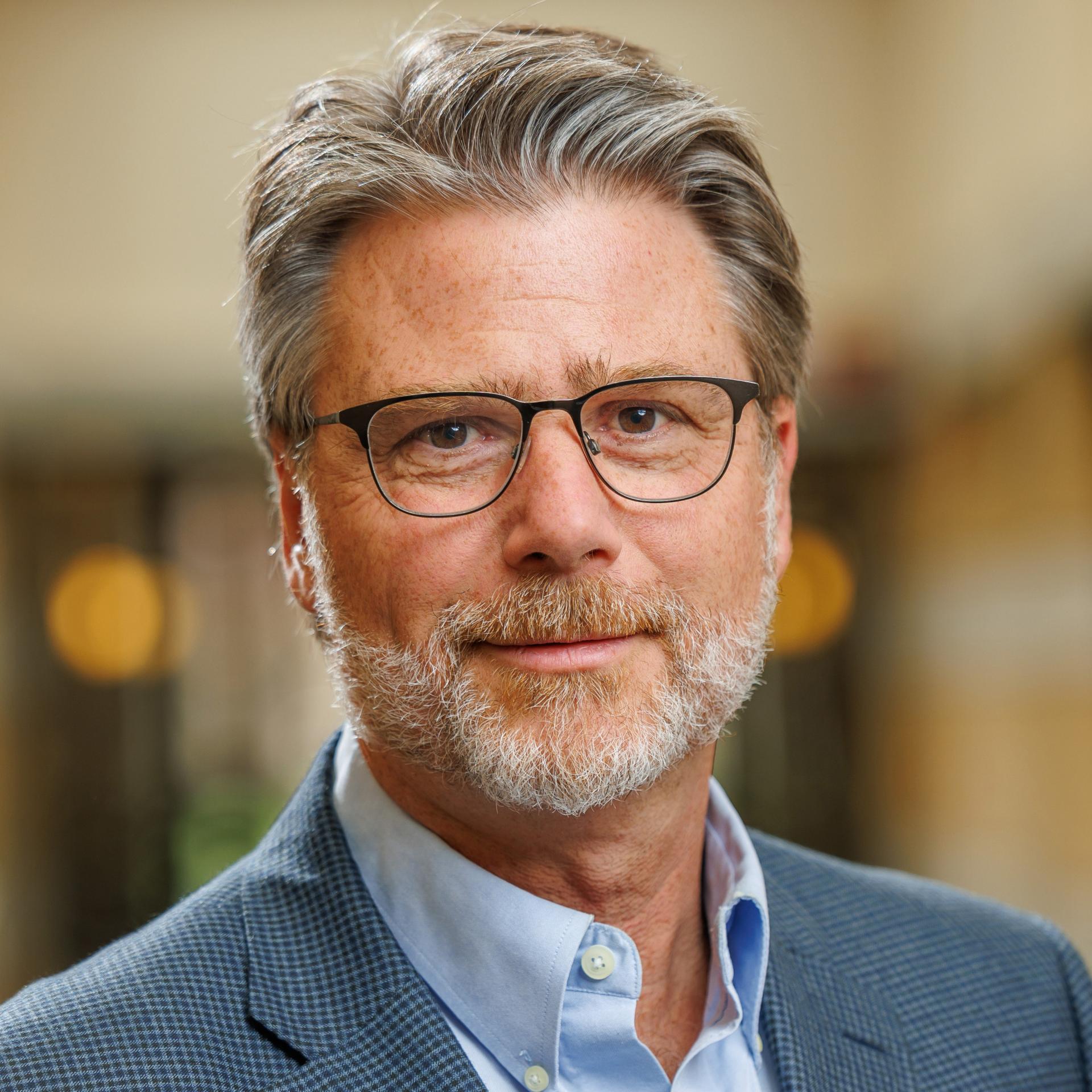 The Kellogg Institute at its 40th Anniversary with Daniel Brinks
The Kellogg Institute at its 40th Anniversary with Daniel Brinks
Interviewed by Kellogg Doctoral Affiliates Isabel Güiza-Gómez and Benjamín García Holgado, current Kellogg Advisory Board member Daniel Brinks discusses his long-standing connection to the Kellogg Institute, what he remembers of the Institute when he was an affiliated graduate student in the 1990s, how Kellogg has impacted research on Latin American politics, and where the Institute can further grow in the near future.
Episode 05
Published: 2023-04-17
Length: 14:17
Hosts: Benjamín García and Isabel Güiza-Gómez
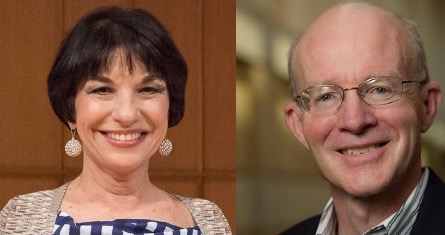 The Kellogg Institute at its 40th Anniversary with Scott Mainwaring and Maria Rosa Olivera-Williams
The Kellogg Institute at its 40th Anniversary with Scott Mainwaring and Maria Rosa Olivera-Williams
Interviewed by Kellogg Institute PhD Fellow Benjamín García Holgado, faculty fellows Scott Mainwaring (former director of the Kellogg Institute) and Maria Rosa Olivera Williams (professor of Latin American literature) discuss their long relationship with the Kellogg Institute, what they remember of Kellogg when they joined in the 1980s, the impact that Kellogg has had on their scholarship, what distinguishes the Institute from other university institutes, and how they envision Kellogg moving forward.
Episode 04
Published: 2023-04-11
Length: 24:18
Host: Benjamín García Holgado
Interviewed by Kellogg Institute Doctoral Affiliates Mayra Ortiz and Laura López, political scientist Guillermo Trejo discusses how weak democratic transitions can lead to the outbreak of large-scale criminal violence, focusing on Mexico. He presents the main findings of his book co-authored along with Sandra Ley, Votes, Drugs and Violence: The Political Logic of Criminal Wars in Mexico, which offers evidence on the partisan logics of the ‘war on drugs’ and power fragmentation’s impacts on cartels’ and state’s incentives in engaging with violence.
En una entrevista con las estudiantes doctorales Mayra Ortiz y Laura López, el politólogo Guillermo Trejo discute la forma en que las transiciones democráticas débiles pueden llevar al surgimiento de la violencia criminal a larga escala, a partir del caso mexicano. Guillermo presenta los principales hallazgos de su libro en coautoría con Sandra Ley, Votos, Drogas y Violencia. La lógica política de las guerras criminales en México, el cual ofrece evidencia sobre las lógicas partidistas de la ‘guerra contra las drogas’ y los efectos de la fragmentación del poder en los incentivos de los carteles y el estado para usar la violencia.
Episode 03
Published: 2023-03-27
Length: 26:22
Hosts: Mayra Ortiz and Laura López
English
Español
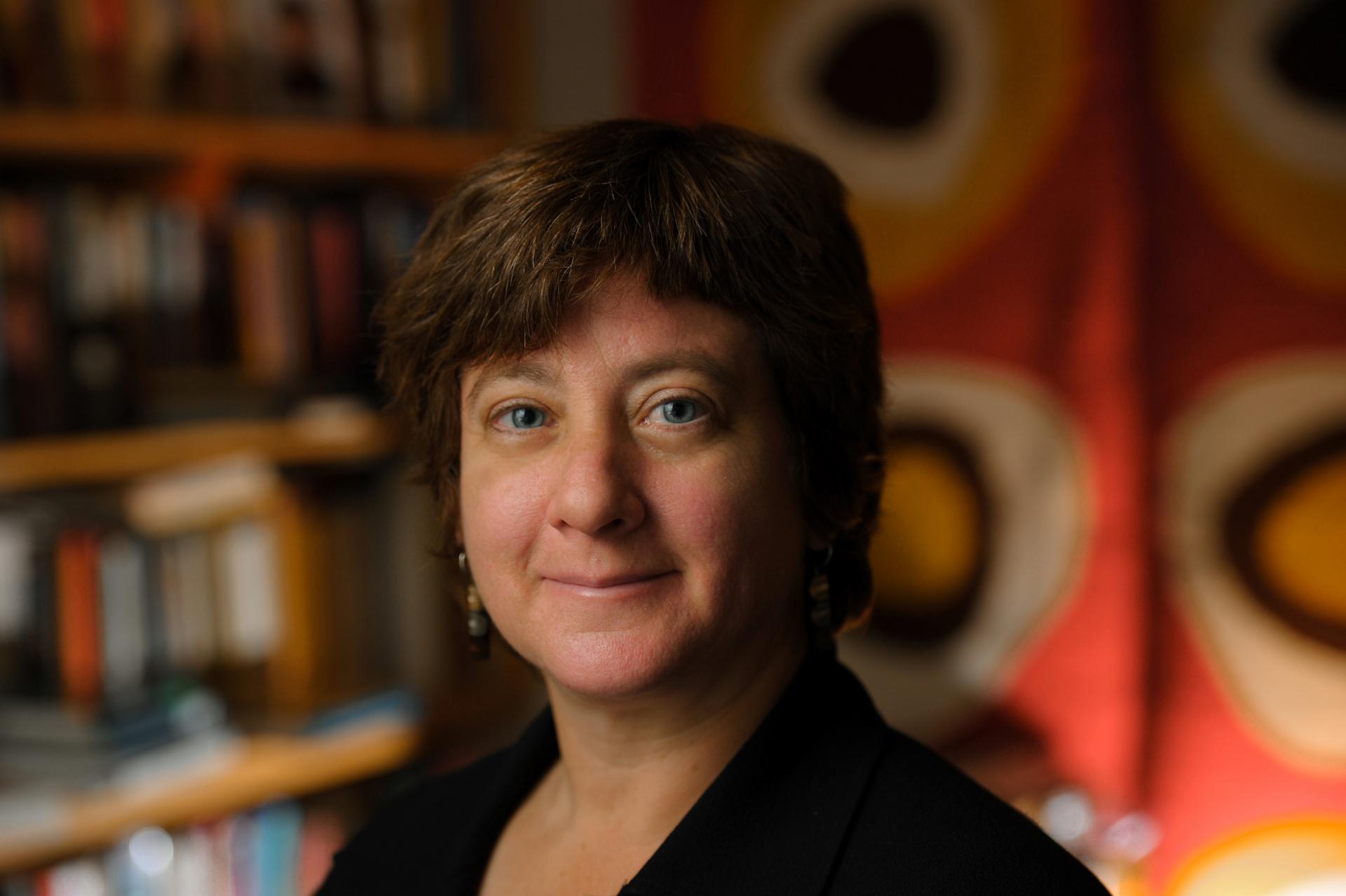 Racial and Religious Self-Governance in the Spanish Atlantic World with Historian Karen Graubart
Racial and Religious Self-Governance in the Spanish Atlantic World with Historian Karen Graubart
Interviewed by Kellogg PhD Fellows Aitor Valdesogo and Juan Vargas, historian Karen Graubart, who is a Kellogg Institute faculty fellow, introduces her recently published book, Republics of Difference: Religious and Racial Self-Governance in the Spanish Atlantic World (Oxford University Press, 2022). The result of more than 15 years of research, this book explores the mechanisms of self-governance that racialized and/or non-Christian communities put into practice in 15th-century Seville and 16th-17th century Lima.
Episode 02
Published: 2023-03-13
Length: 27:35
Hosts: Aitor Valdesogo and Juan Vargas
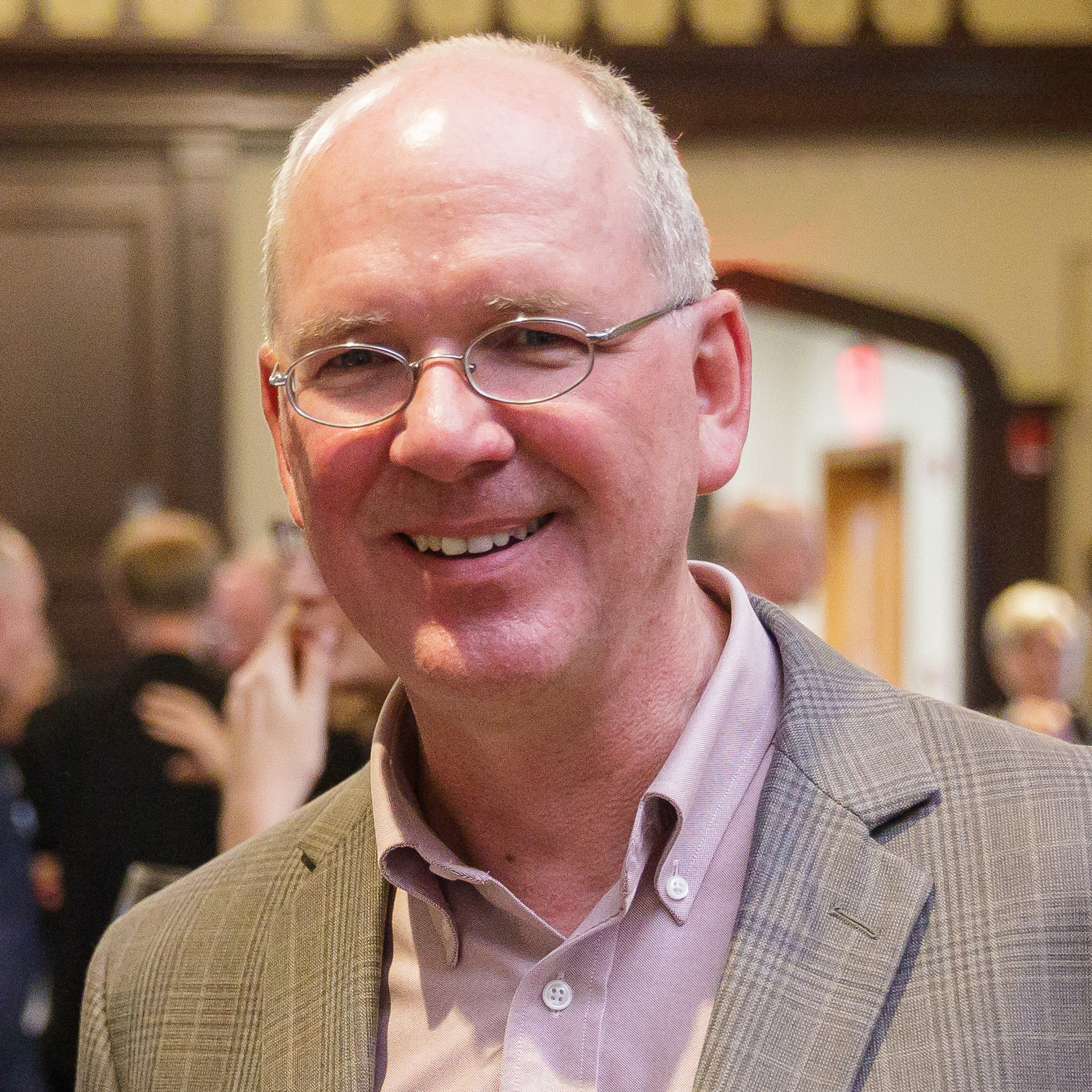 Democratic Development and Decline with Political Scientist Michael Coppedge
Democratic Development and Decline with Political Scientist Michael Coppedge
Interviewed by Kellogg Doctoral Affiliates Benjamín García and Isabel Güiza-Gómez, political scientist and Kellogg Faculty Fellow Michael Coppedge
discusses the foundational question of why some countries escape autocratic rule and strengthen democracy while others remain trapped. He introduces his recently co-authored book Why Democracies Develop and Decline, which offers evidence on democratization, democratic consolidation, and democratic backsliding, drawing on data assembled from the Varieties of Democracy Project (V-Dem).
Episode 01
Published: 2023-02-21
Length: 25:22
Hosts: Benjamín García and Isabel Güiza-Gómez






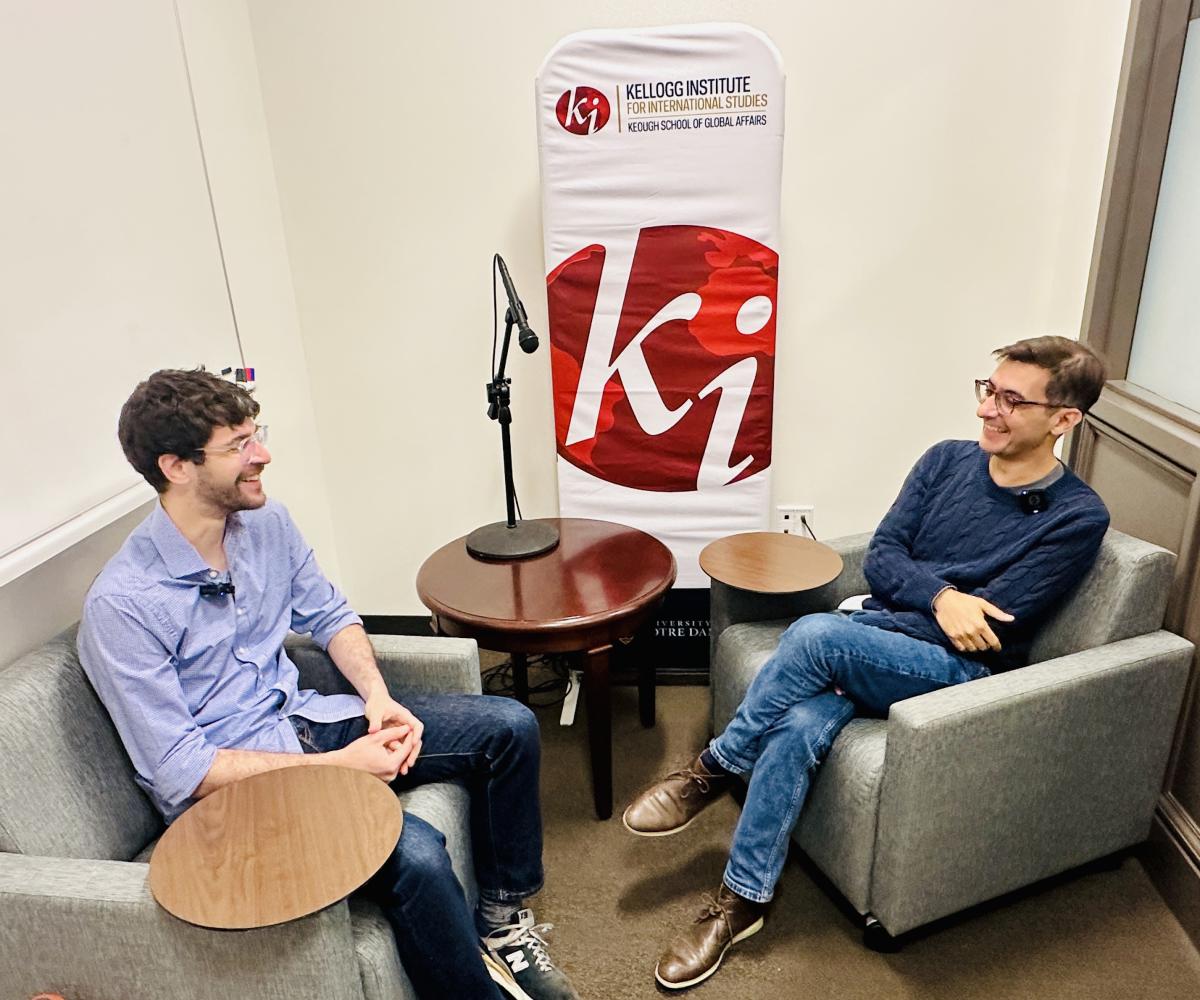
 Electoral Integrity in the World’s Largest Democracy with S. Y. Quraishi, Former Chief Election Commissioner of India
Electoral Integrity in the World’s Largest Democracy with S. Y. Quraishi, Former Chief Election Commissioner of India The Future of US Development and Democracy Promotion with Thomas Carothers, from the Carnegie Endowment for International Peace
The Future of US Development and Democracy Promotion with Thomas Carothers, from the Carnegie Endowment for International Peace Cafecitos: Motherhood and Migration Stories” with Jessica Noffsinger, Vania Smith-Oka, Vanesa Miseres, and Lexi Gonzalez Madrid / “Cafecitos: Historias de maternidad y migración” con Jessica Noffsinger, Vania Smith-Oka, Vanesa Miseres y Lexi Gonzalez Mad
Cafecitos: Motherhood and Migration Stories” with Jessica Noffsinger, Vania Smith-Oka, Vanesa Miseres, and Lexi Gonzalez Madrid / “Cafecitos: Historias de maternidad y migración” con Jessica Noffsinger, Vania Smith-Oka, Vanesa Miseres y Lexi Gonzalez Mad
 El Estado de la Democracia y de los Derechos Humanos en Centroamérica, con Tamara Dávila y Verónica Reina
El Estado de la Democracia y de los Derechos Humanos en Centroamérica, con Tamara Dávila y Verónica Reina St. Óscar Romero for Faith Communities Today in El Salvador and the United States with Theologians Alma Tinoco Ruiz and Laurel Marshall Potter
St. Óscar Romero for Faith Communities Today in El Salvador and the United States with Theologians Alma Tinoco Ruiz and Laurel Marshall Potter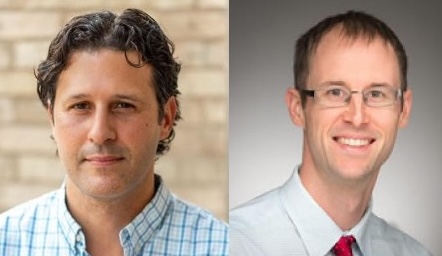 Romero 2025 Series - Romero Studies at the University of Notre Dame with Theologians David Lantigua and Todd Walatka
Romero 2025 Series - Romero Studies at the University of Notre Dame with Theologians David Lantigua and Todd Walatka Cooperative Complexity: The Next Level of Global Economic Governance with Political Scientist Ricky Clark
Cooperative Complexity: The Next Level of Global Economic Governance with Political Scientist Ricky Clark Restoring the Visibility of Women in the Colegio de Mexico, with Gabriela Cano and Saúl Espino Armendáriz
Restoring the Visibility of Women in the Colegio de Mexico, with Gabriela Cano and Saúl Espino Armendáriz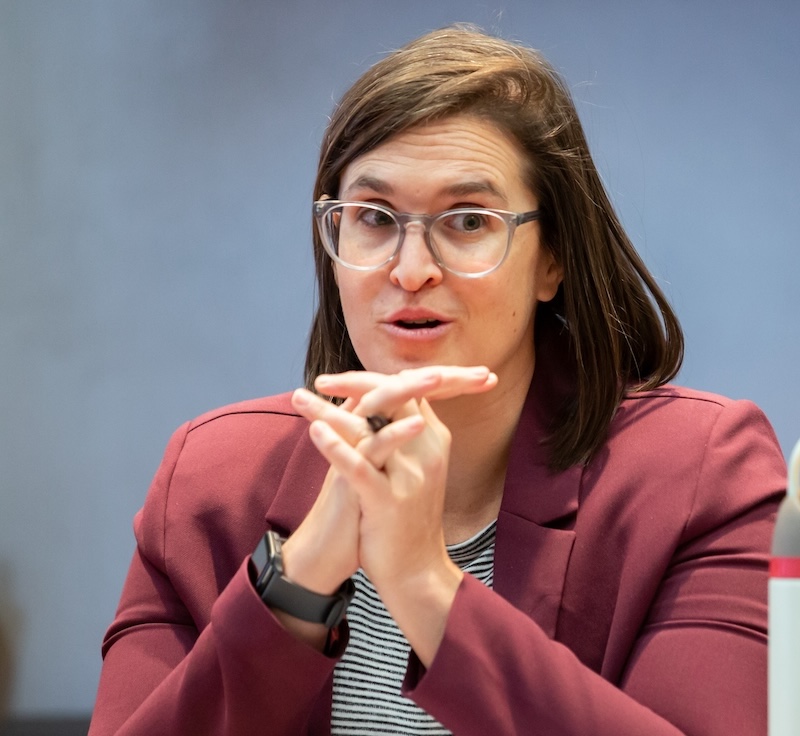 State-Building, Corruption, and Accountability in Post-War Societies with Political Scientist Rachel Schwartz / Construcción Estatal, Corrupción y Rendición de Cuentas en Sociedades de la Posguerra con la Politóloga Rachel Schwartz
State-Building, Corruption, and Accountability in Post-War Societies with Political Scientist Rachel Schwartz / Construcción Estatal, Corrupción y Rendición de Cuentas en Sociedades de la Posguerra con la Politóloga Rachel Schwartz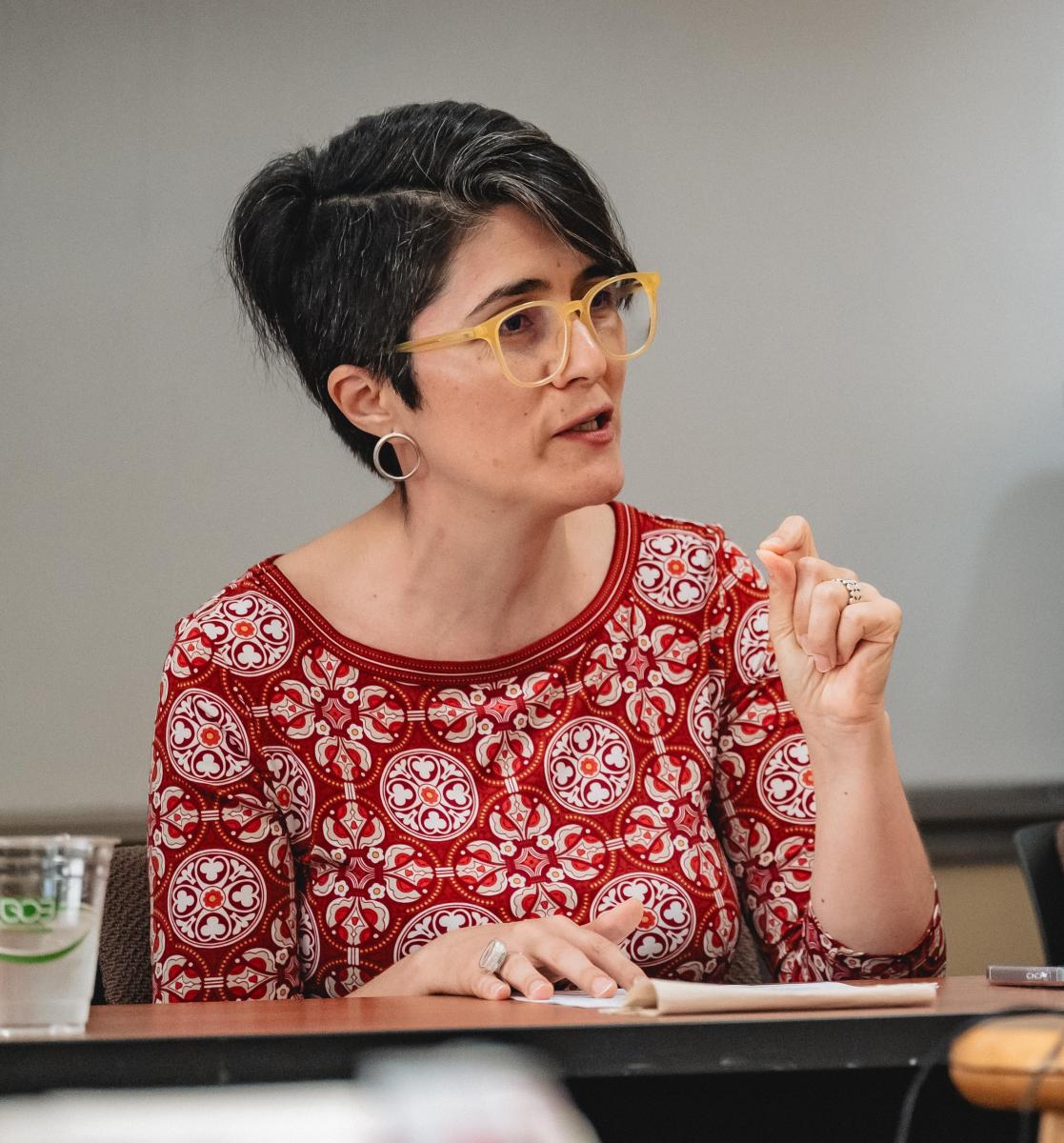 ‘Courts that Matter’ with Political Scientist Sandra Botero / ‘Tribunales que Importan’ con la Politóloga Sandra Botero
‘Courts that Matter’ with Political Scientist Sandra Botero / ‘Tribunales que Importan’ con la Politóloga Sandra Botero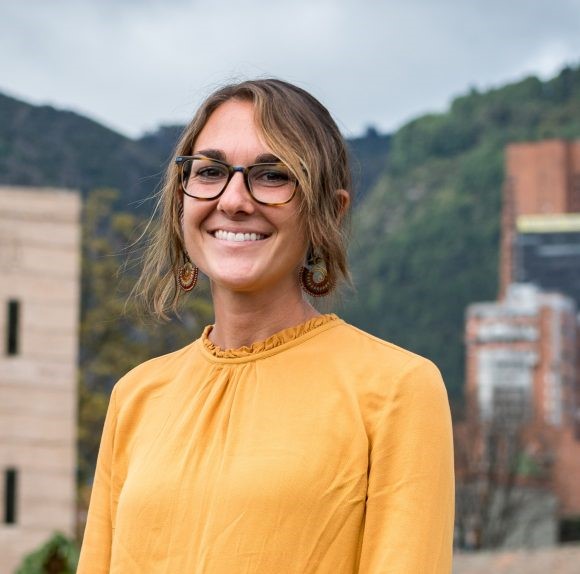 Feel the Grass Grow: Ecologies of Slow Peace in Colombia with Angela Lederach / Sentir Crecer la Hierba. Ecologías de Paz sin Prisa en Colombia con Angela Lederach
Feel the Grass Grow: Ecologies of Slow Peace in Colombia with Angela Lederach / Sentir Crecer la Hierba. Ecologías de Paz sin Prisa en Colombia con Angela Lederach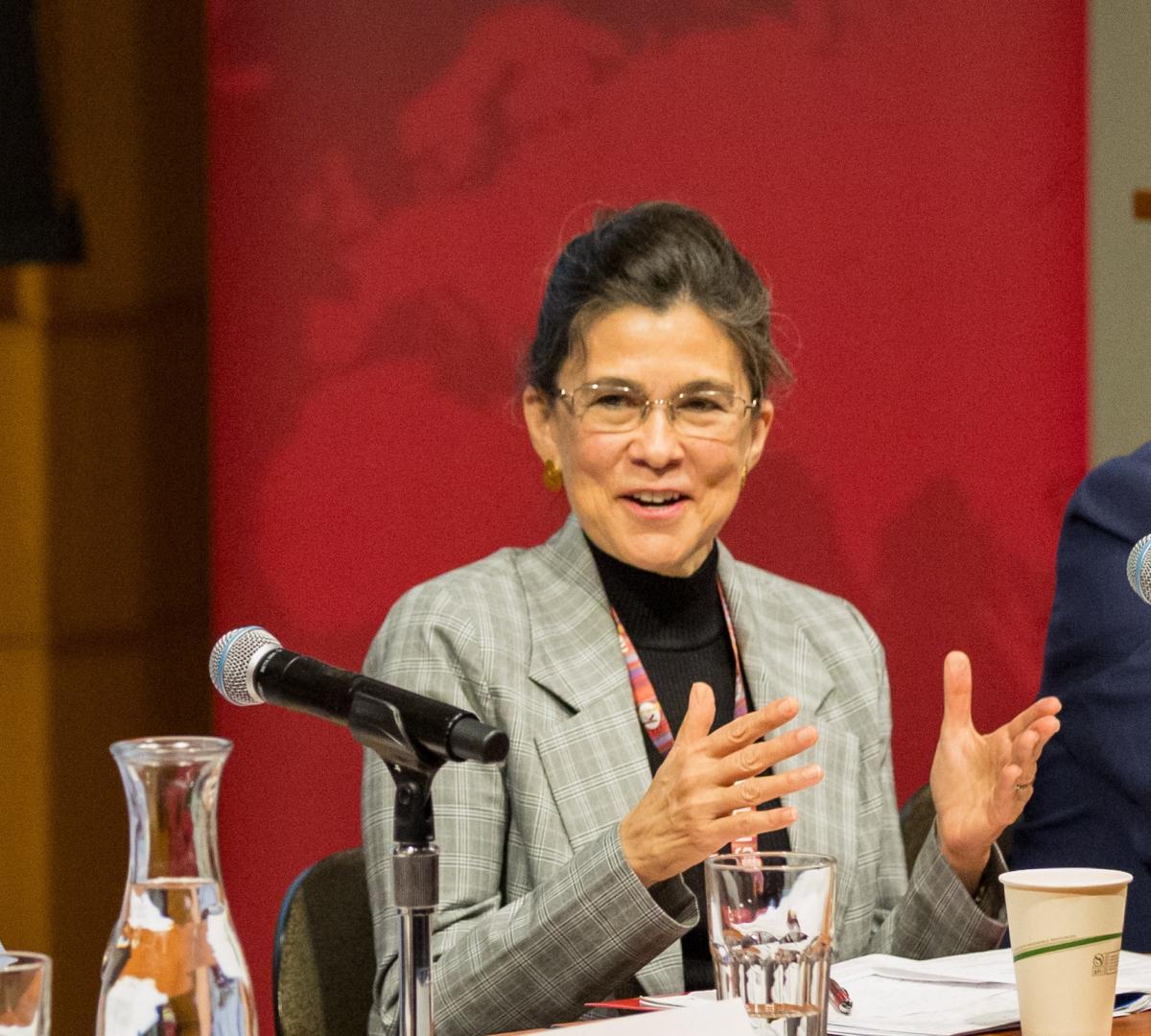 Global Democracy Series – Four Decades of Democracy in Latin America with Political Scientists Wendy Hunter and Benjamín Garcia Holgado
Global Democracy Series – Four Decades of Democracy in Latin America with Political Scientists Wendy Hunter and Benjamín Garcia Holgado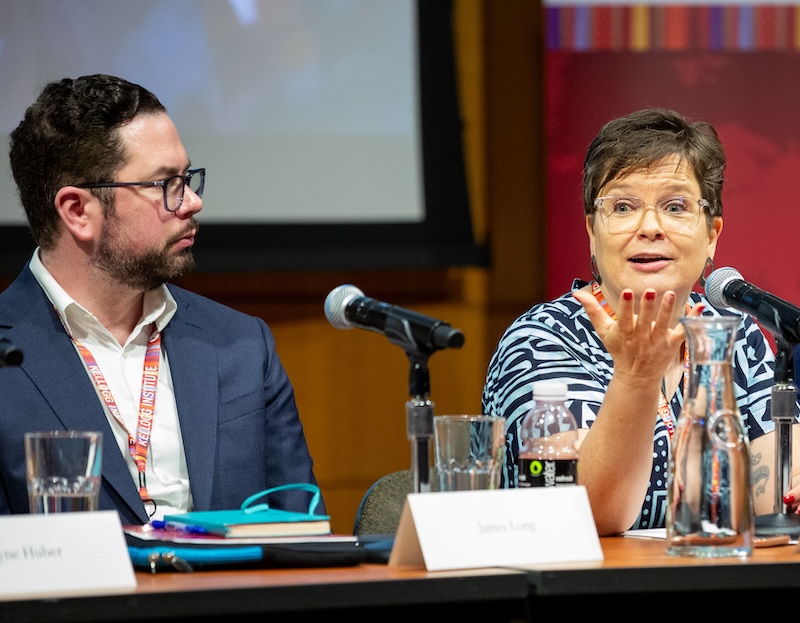 Global Democracy Series – Inequality, Human Development, and Democracy with Helena Hofbauer Balmori and James Long
Global Democracy Series – Inequality, Human Development, and Democracy with Helena Hofbauer Balmori and James Long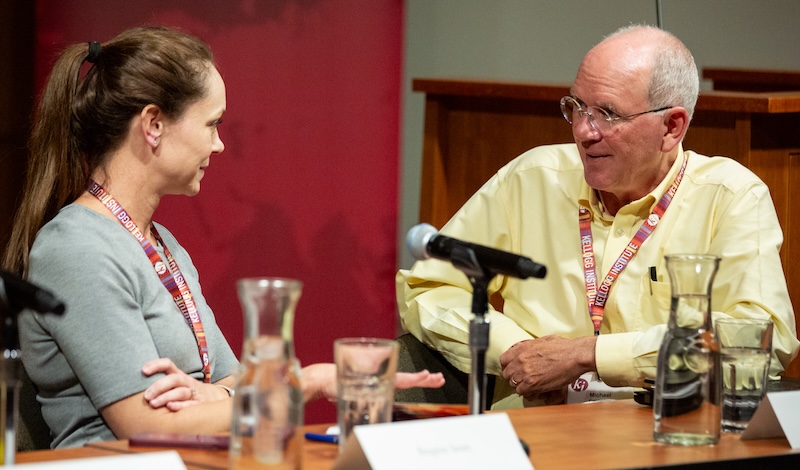 Global Democracy Series - Measuring the State of Democracy with Political Scientists Michael Coppedge and Brigitte Seim
Global Democracy Series - Measuring the State of Democracy with Political Scientists Michael Coppedge and Brigitte Seim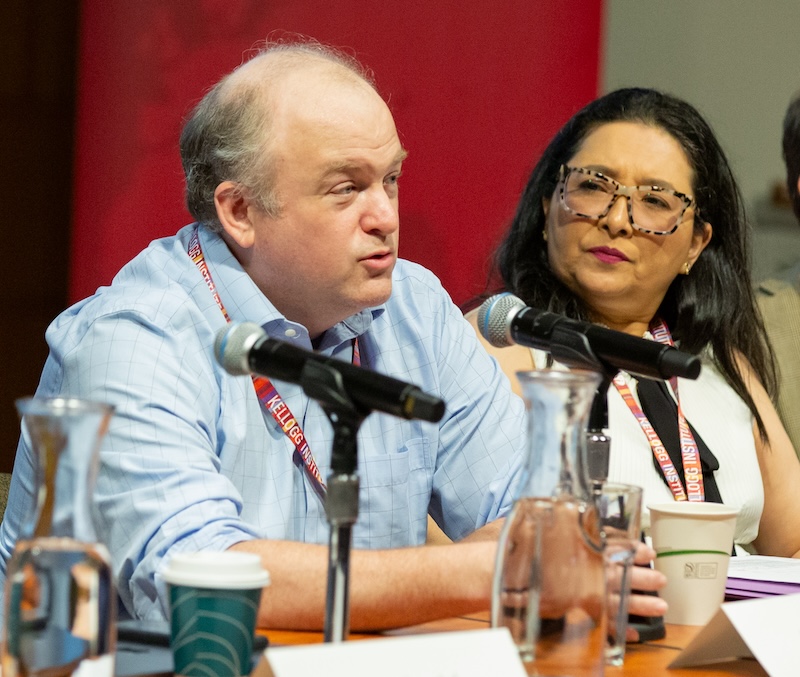 International Threats, Misinformation, and Antidemocratic Forces, with Political Scientists María Isabel Puerta Riera and Steven Lloyd Wilson
International Threats, Misinformation, and Antidemocratic Forces, with Political Scientists María Isabel Puerta Riera and Steven Lloyd Wilson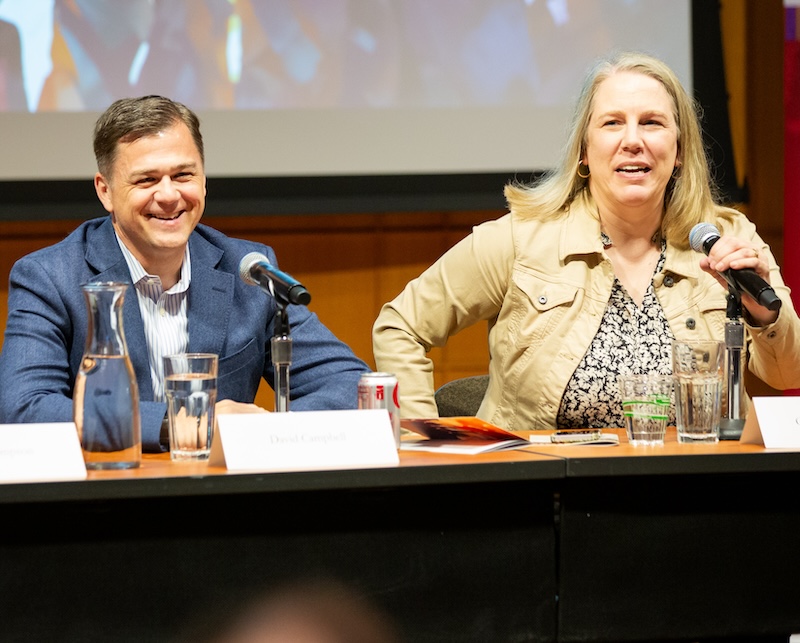 Global Democracy Series - The US Election and its Consequences for Democracy with Political Scientists Dave Campbell and Christina Wolbrecht
Global Democracy Series - The US Election and its Consequences for Democracy with Political Scientists Dave Campbell and Christina Wolbrecht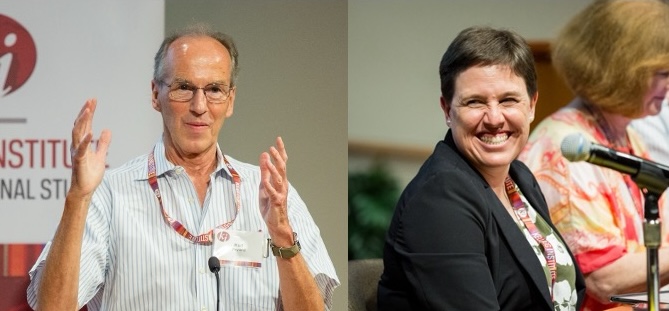 Global Democracy Series - Backsliding, Populism, and Strategies for Democratic Defense: A Conversation with Laura Gamboa and Kurt Weyland
Global Democracy Series - Backsliding, Populism, and Strategies for Democratic Defense: A Conversation with Laura Gamboa and Kurt Weyland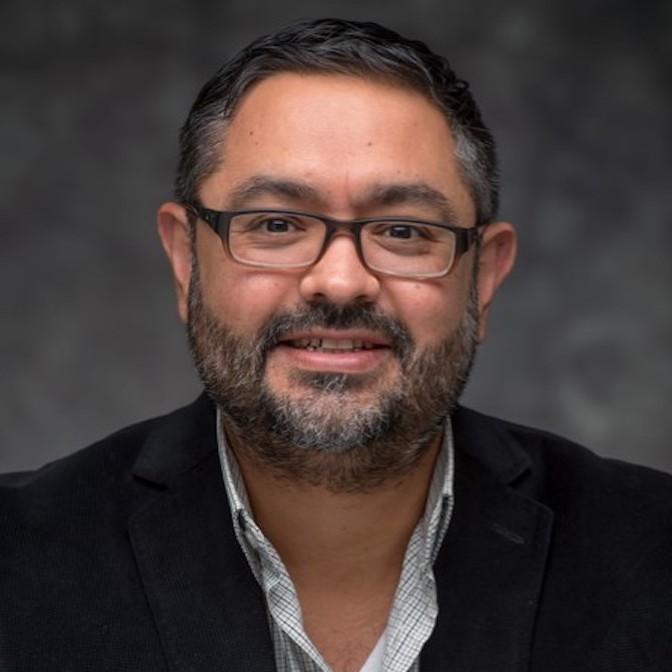
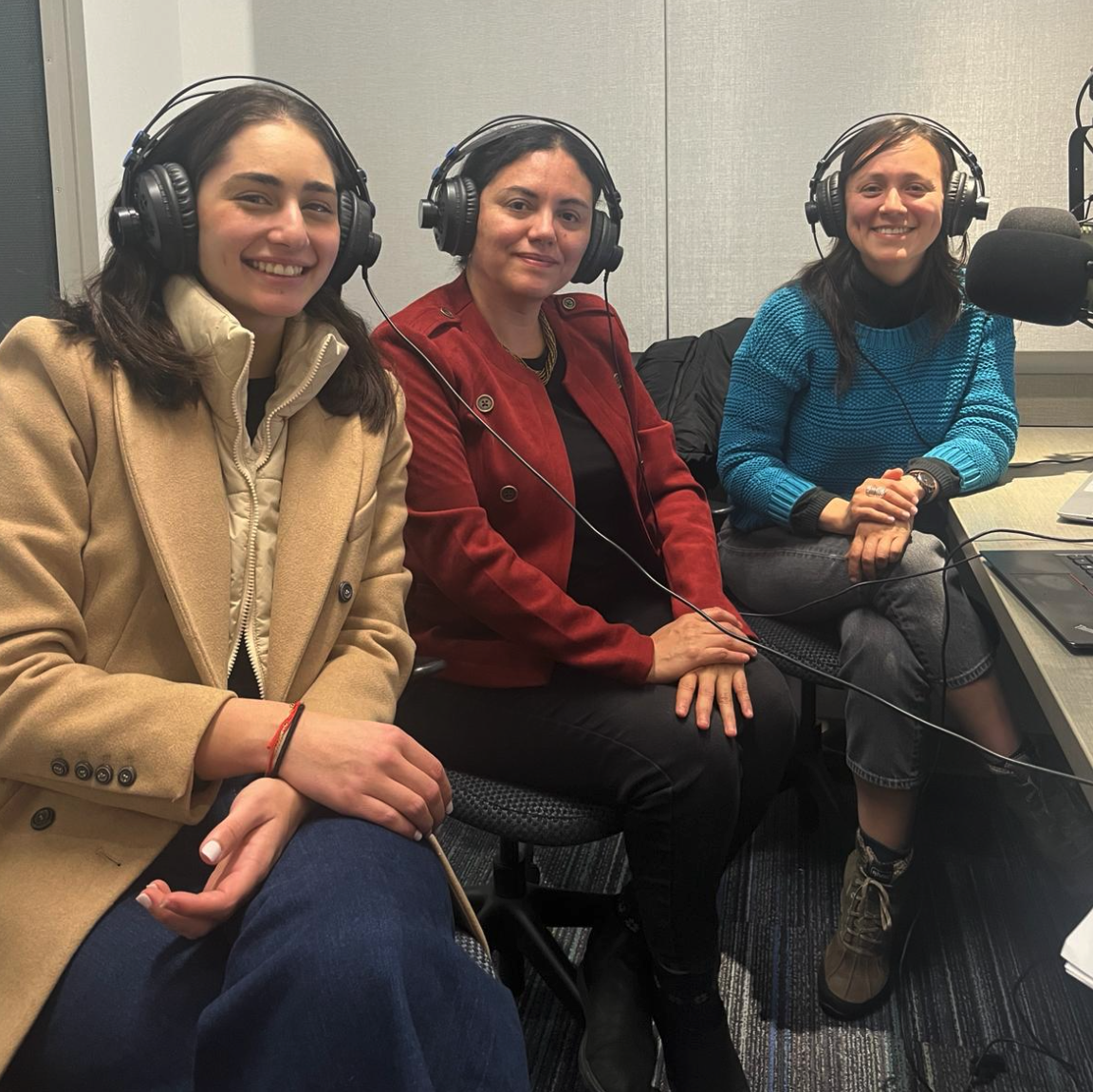
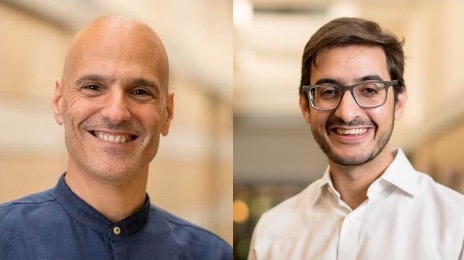
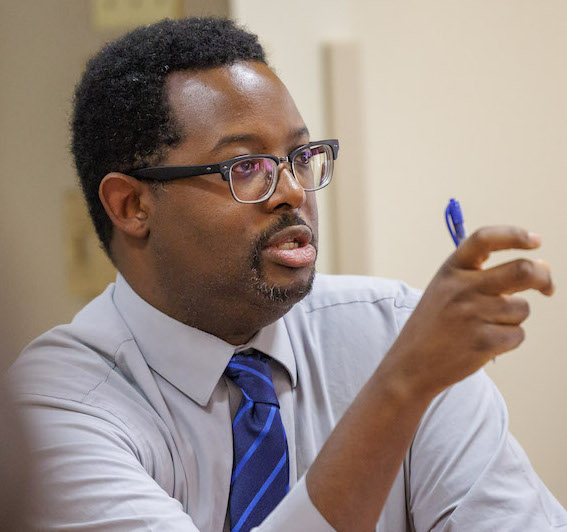
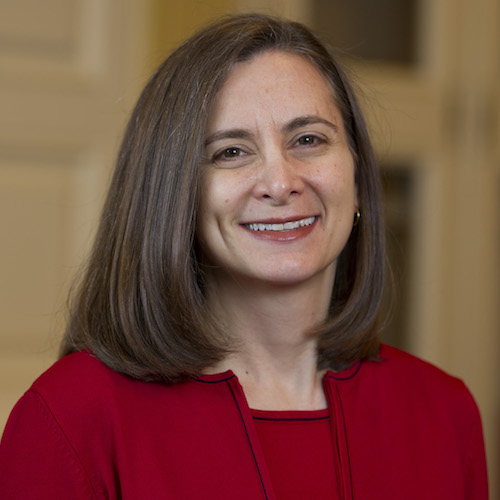 Anger, Retaliatory Violence, and Peaceful Political Activism: Individual Drivers of Post-Conflict Behavior with Political Scientist Debra Javeline
Anger, Retaliatory Violence, and Peaceful Political Activism: Individual Drivers of Post-Conflict Behavior with Political Scientist Debra Javeline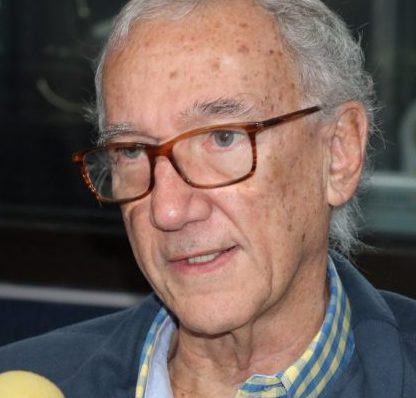 Defensa de los Derechos Humanos y Justicia Transicional en El Salvador, con el Padre José María Tojeira
Defensa de los Derechos Humanos y Justicia Transicional en El Salvador, con el Padre José María Tojeira